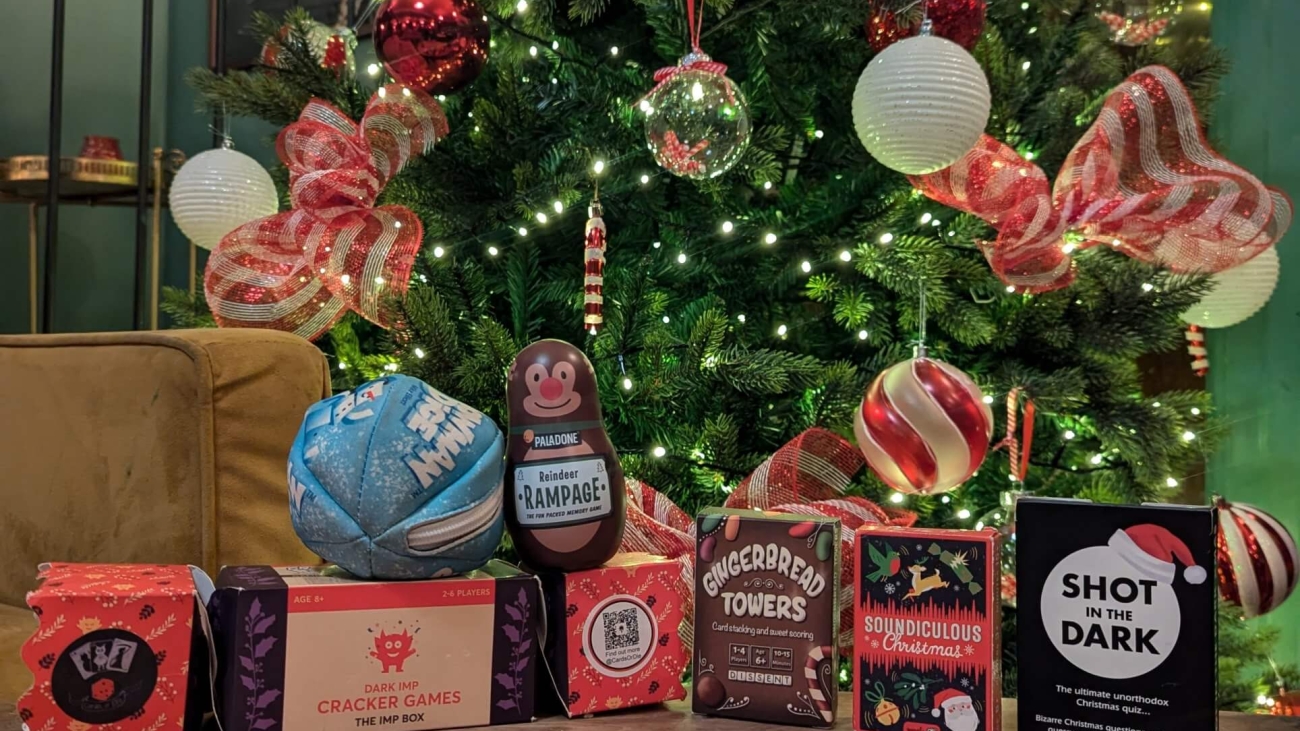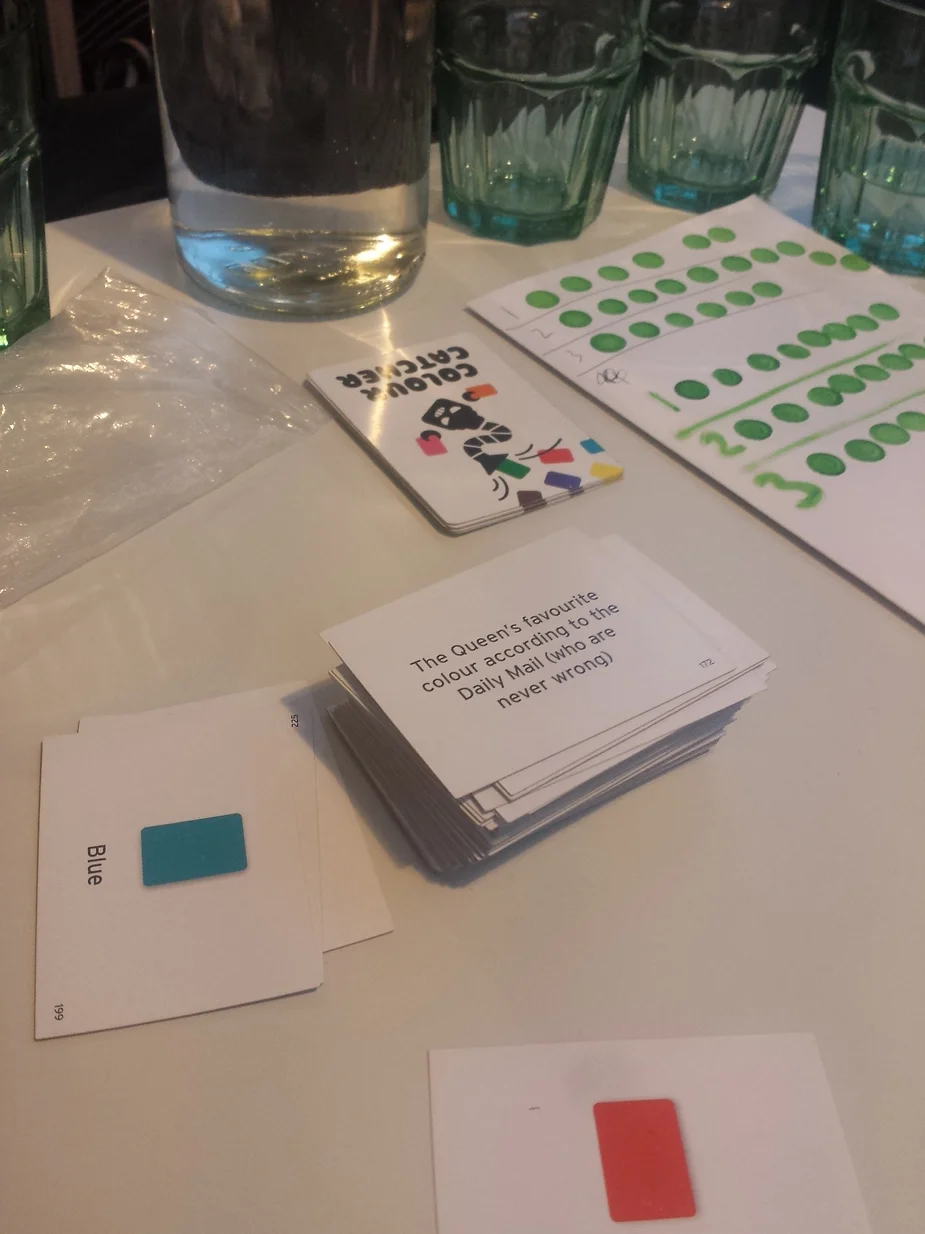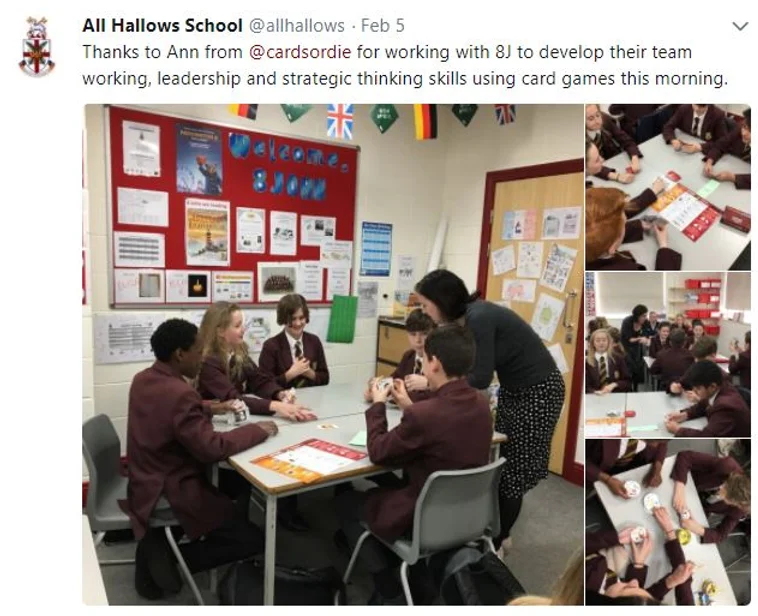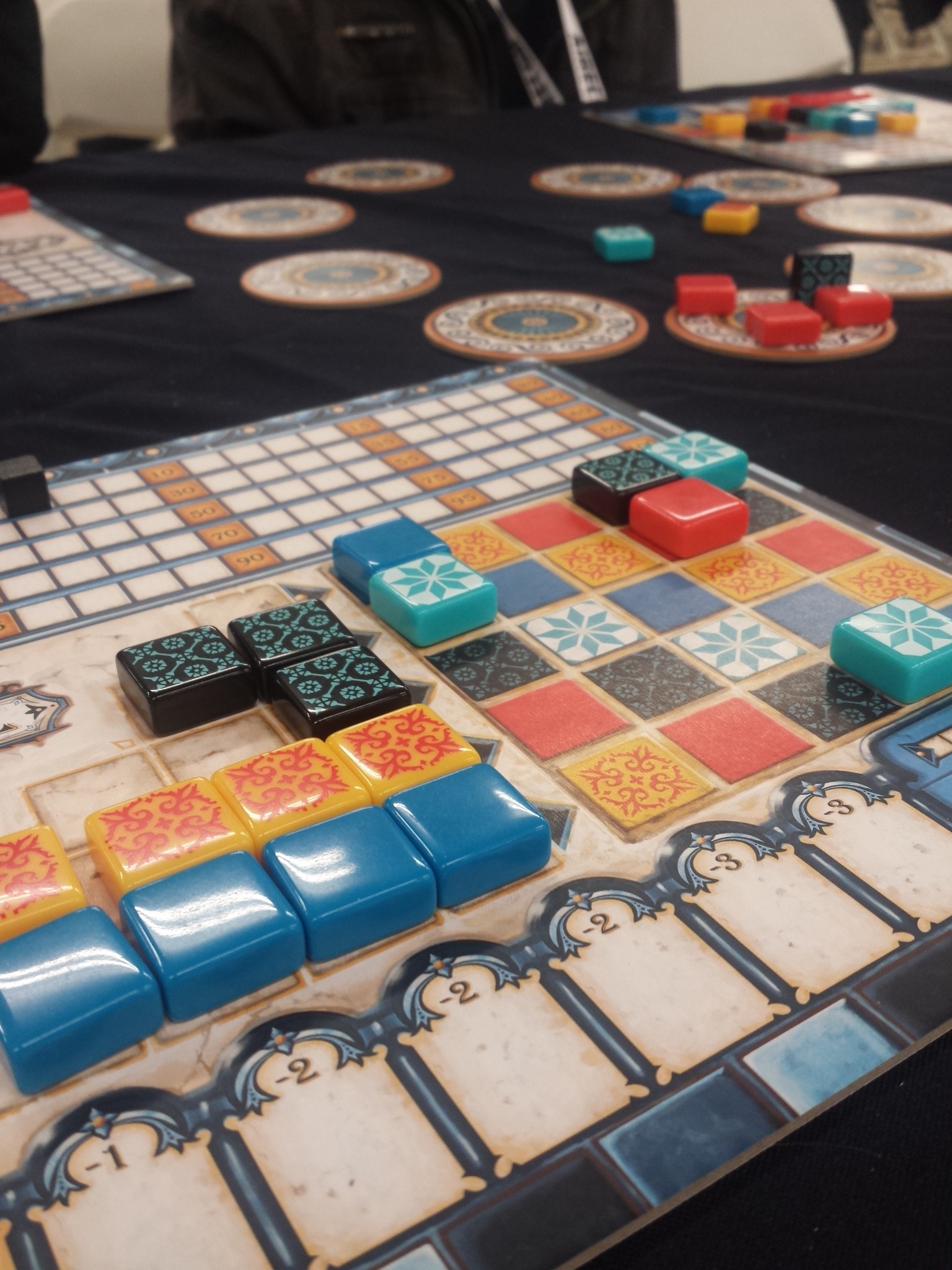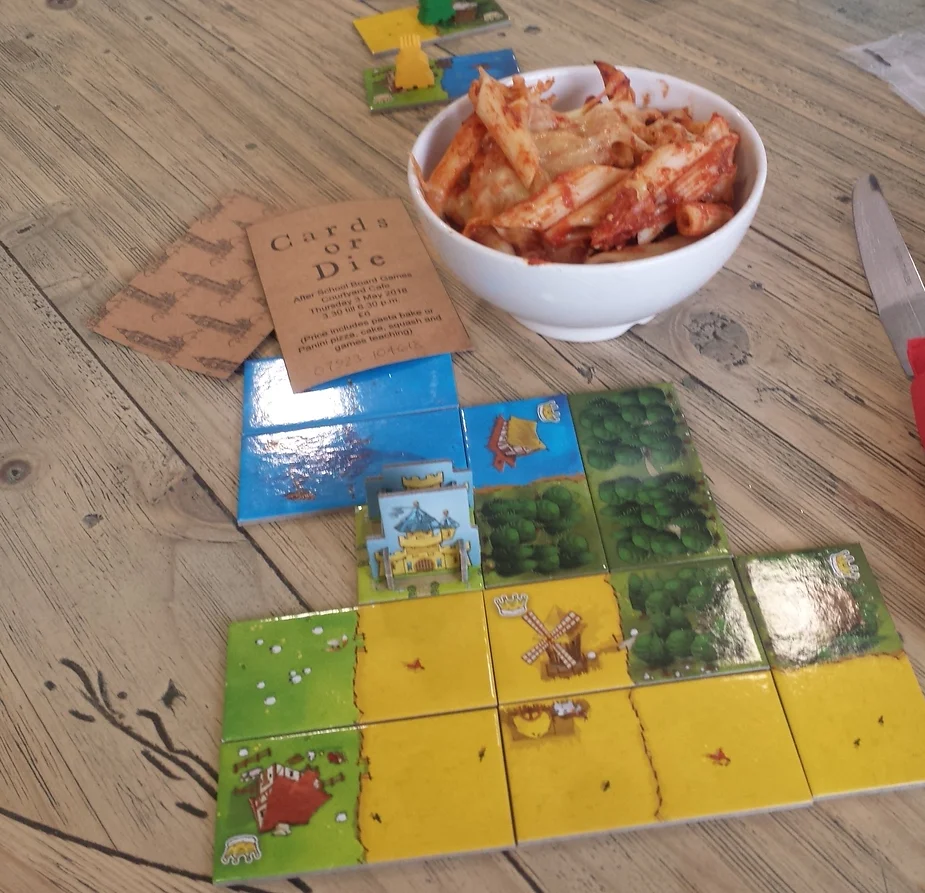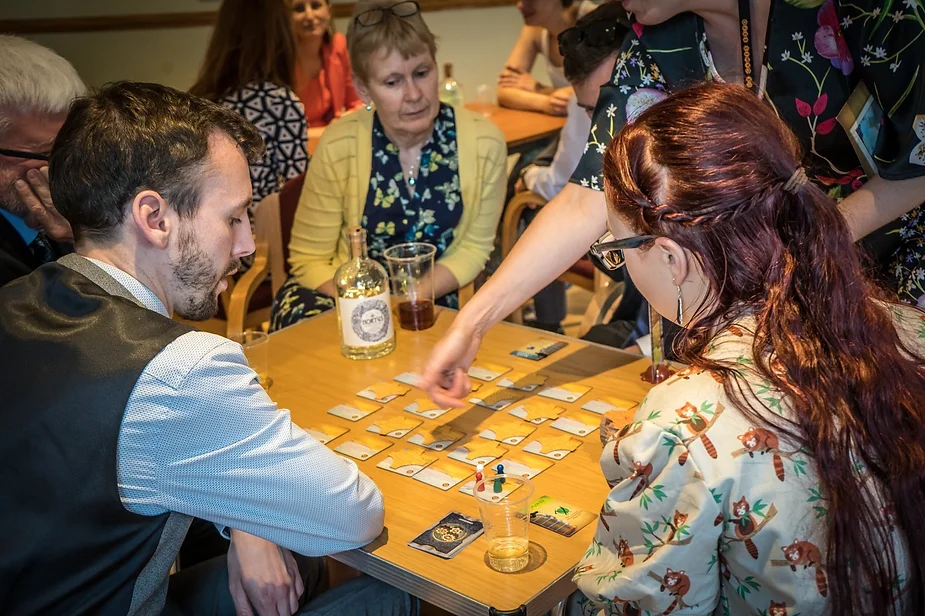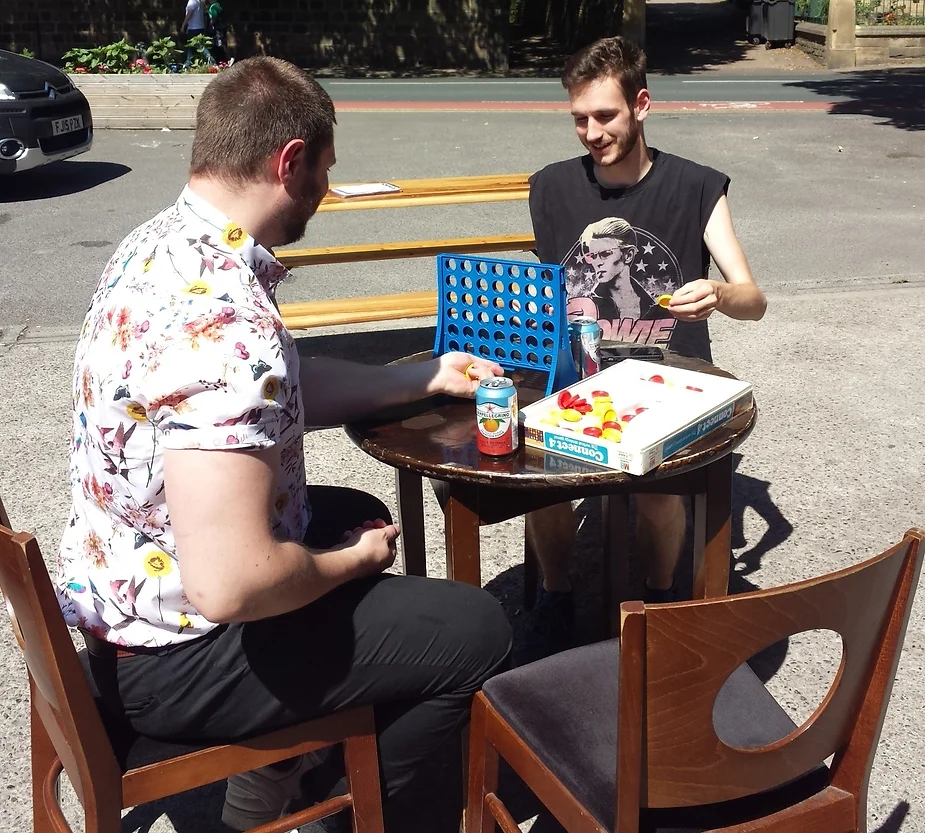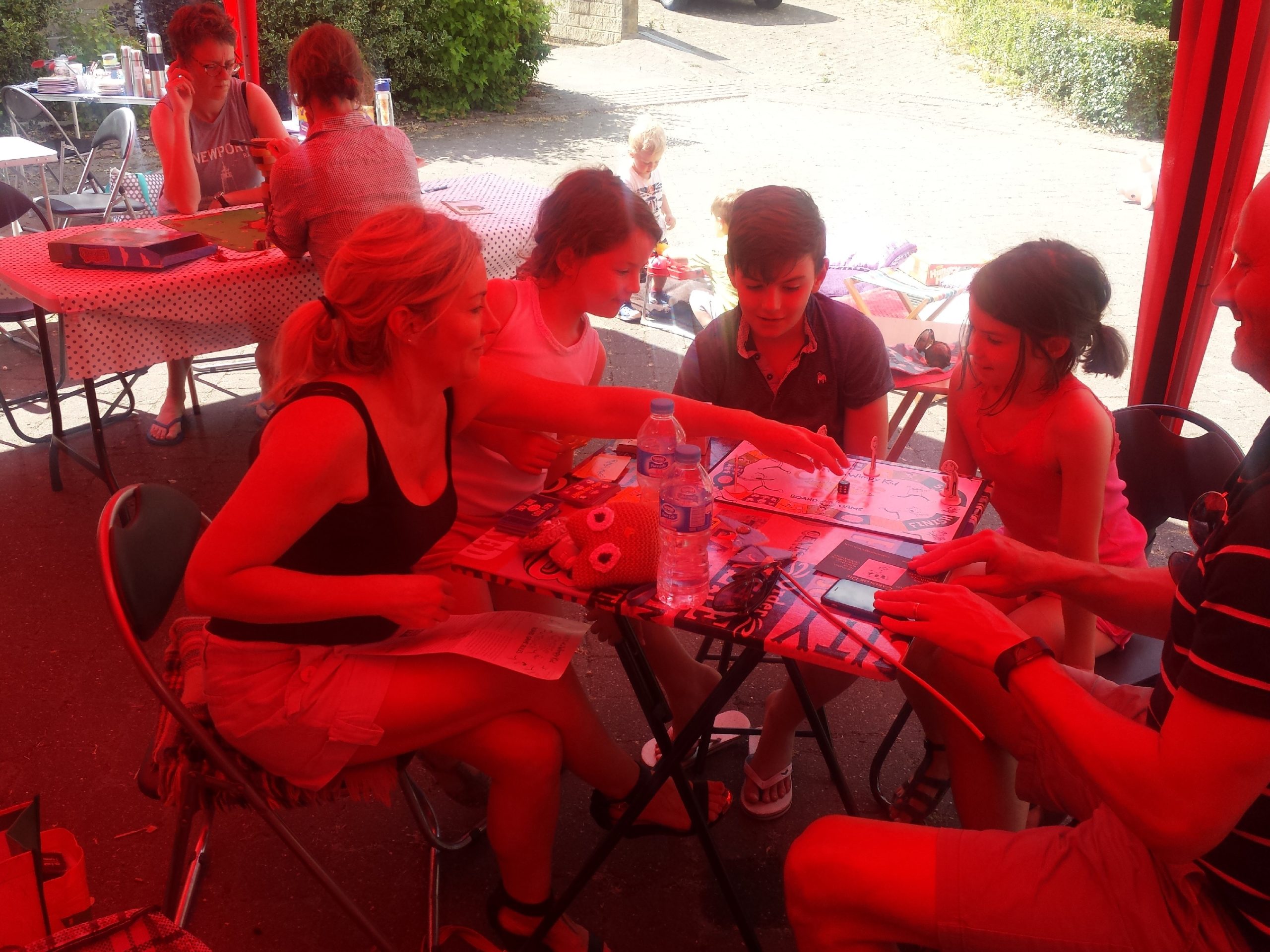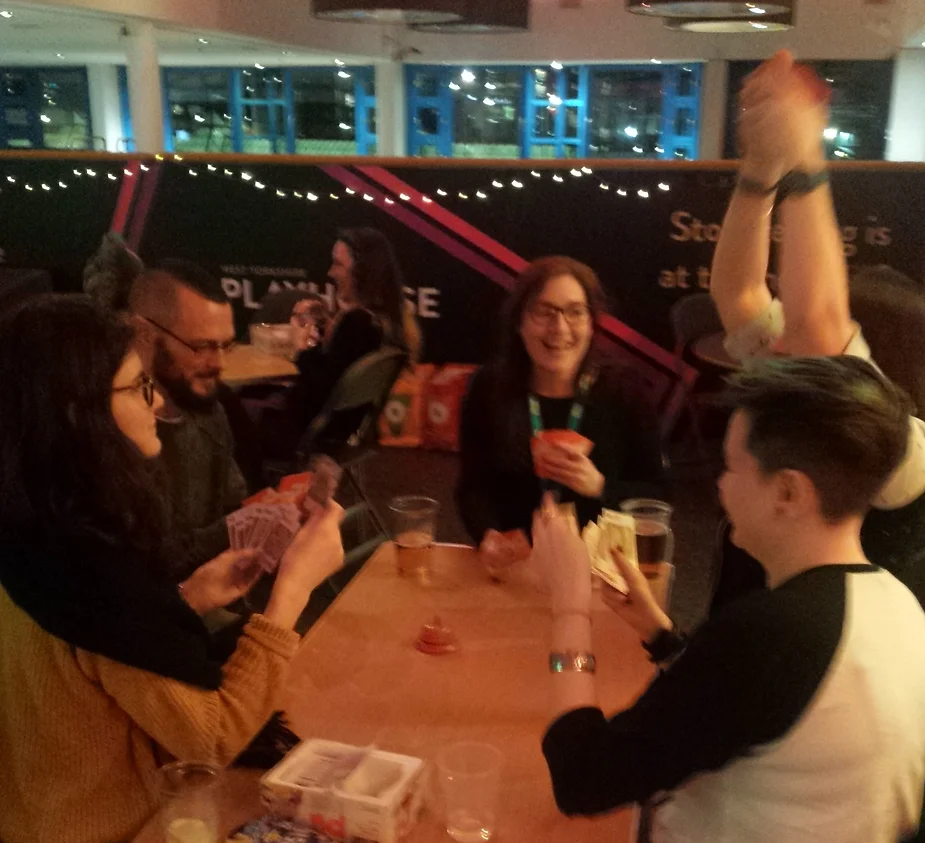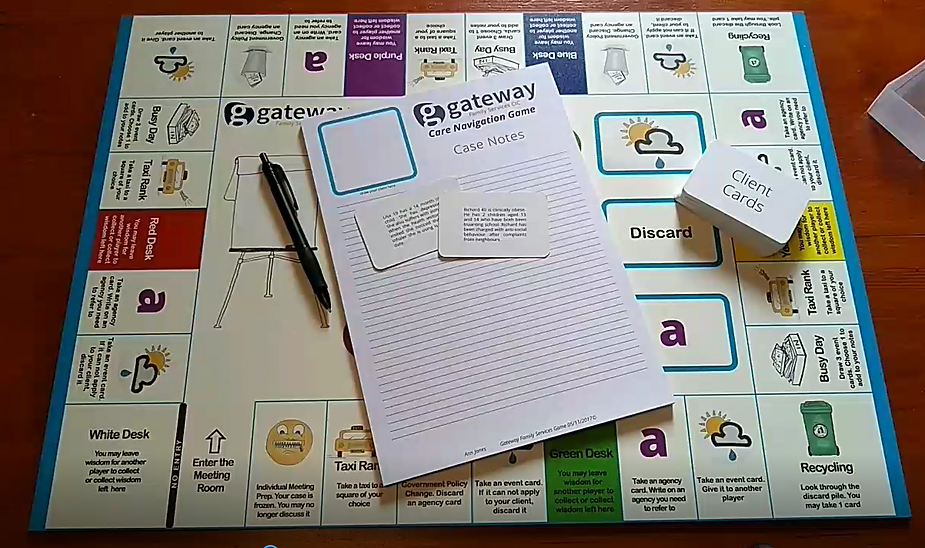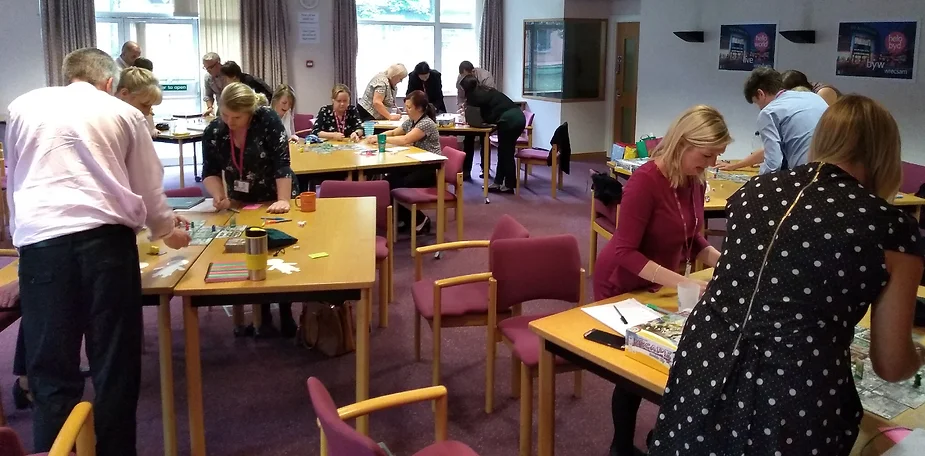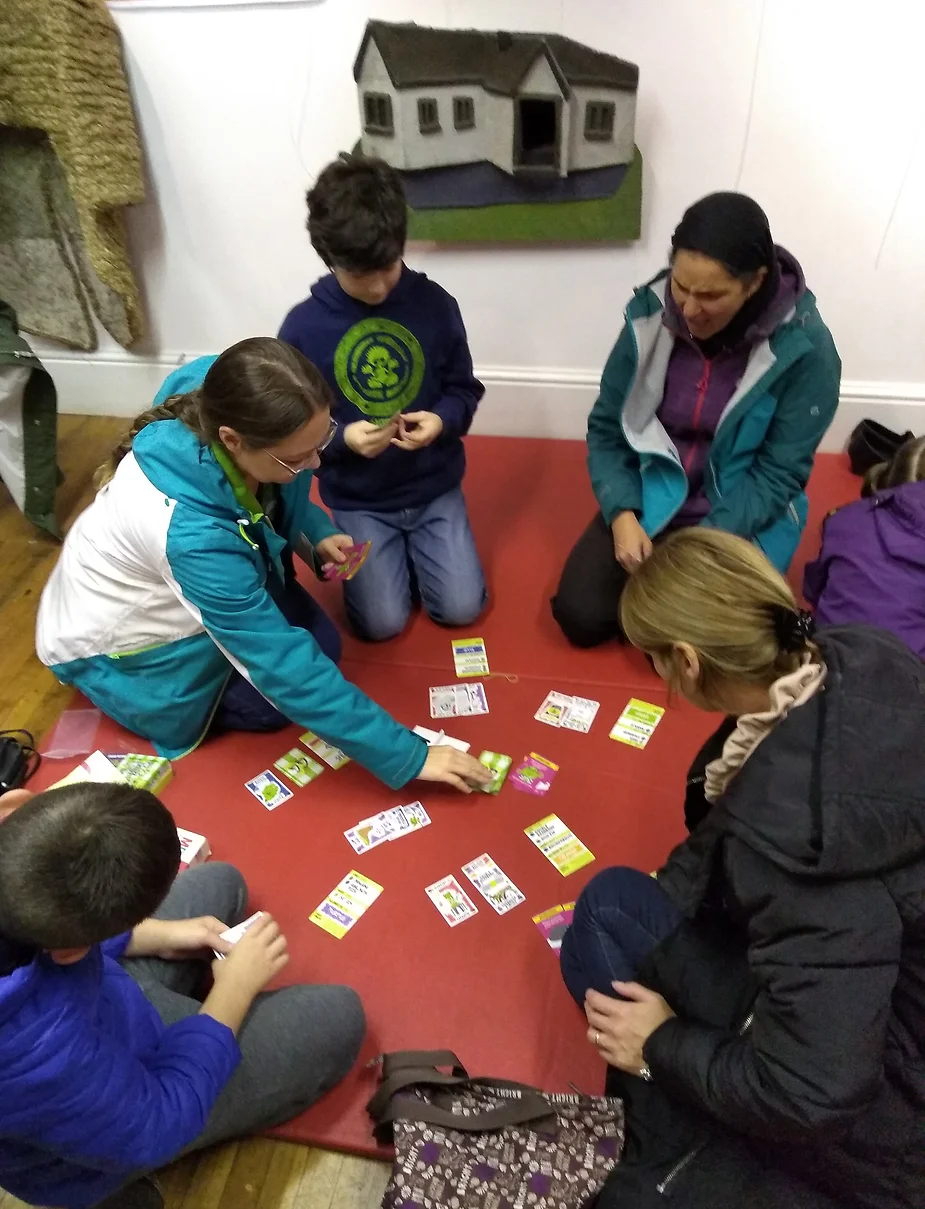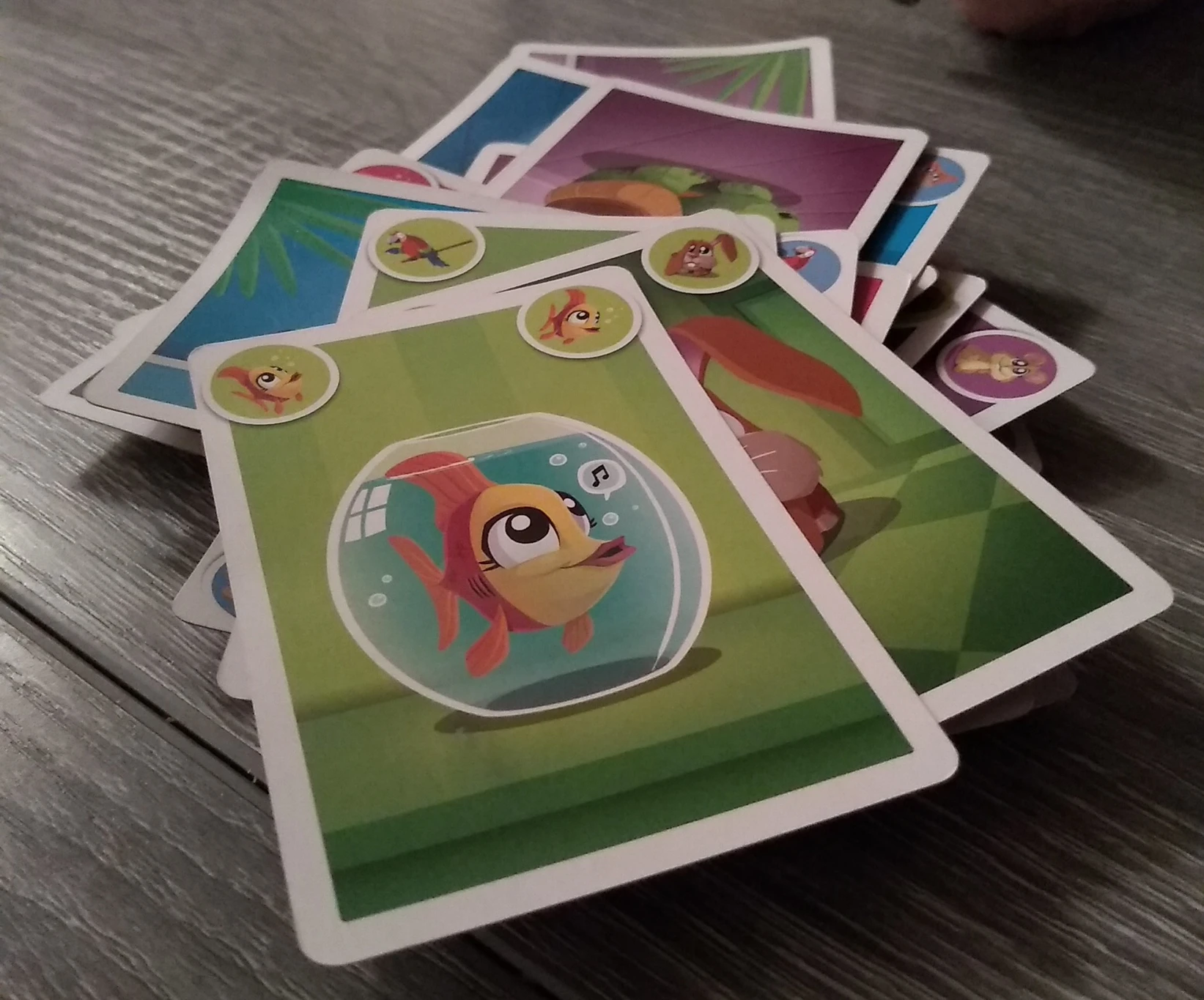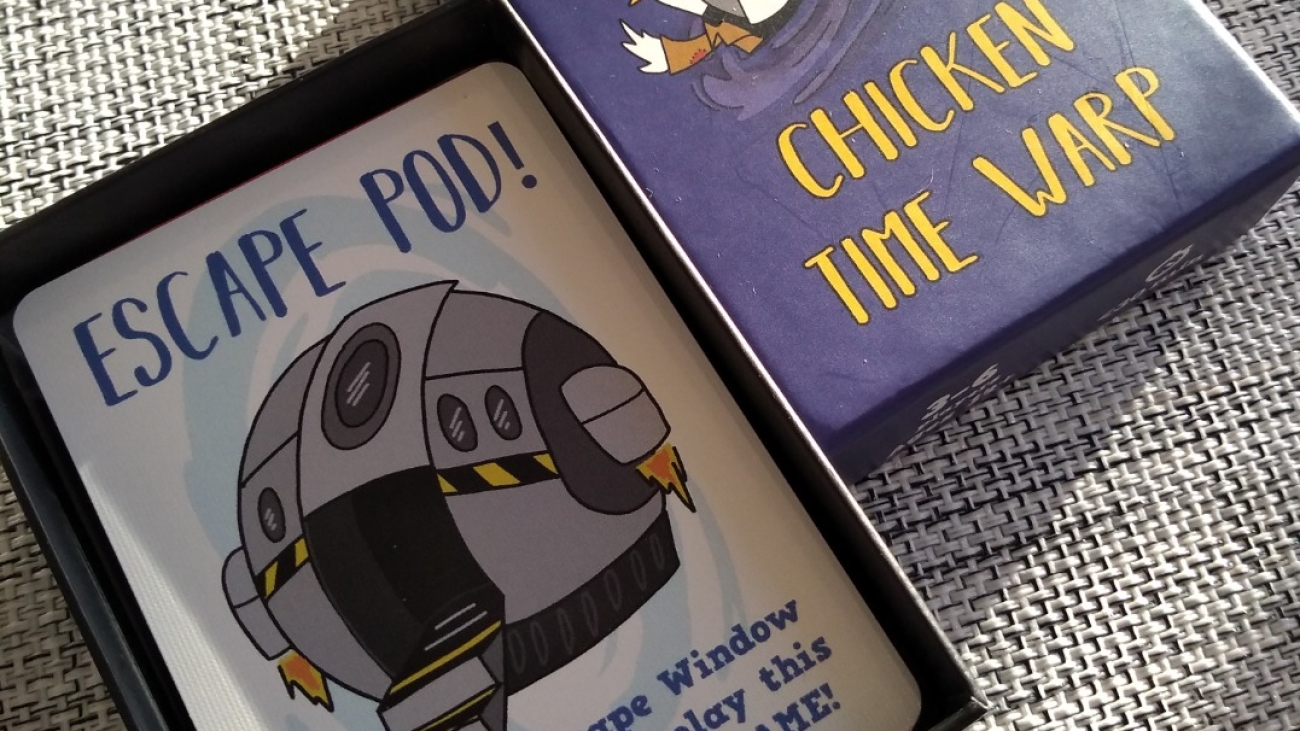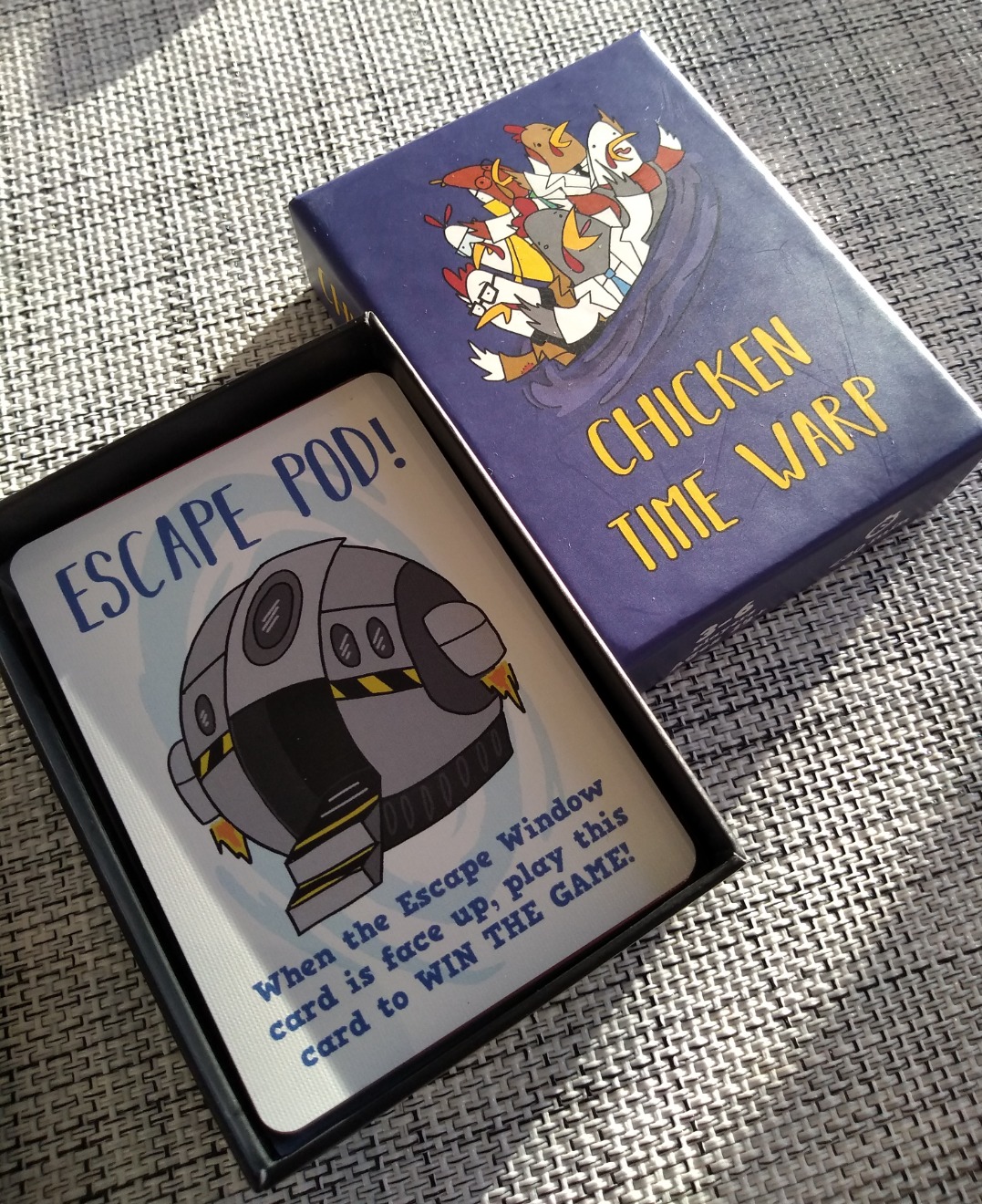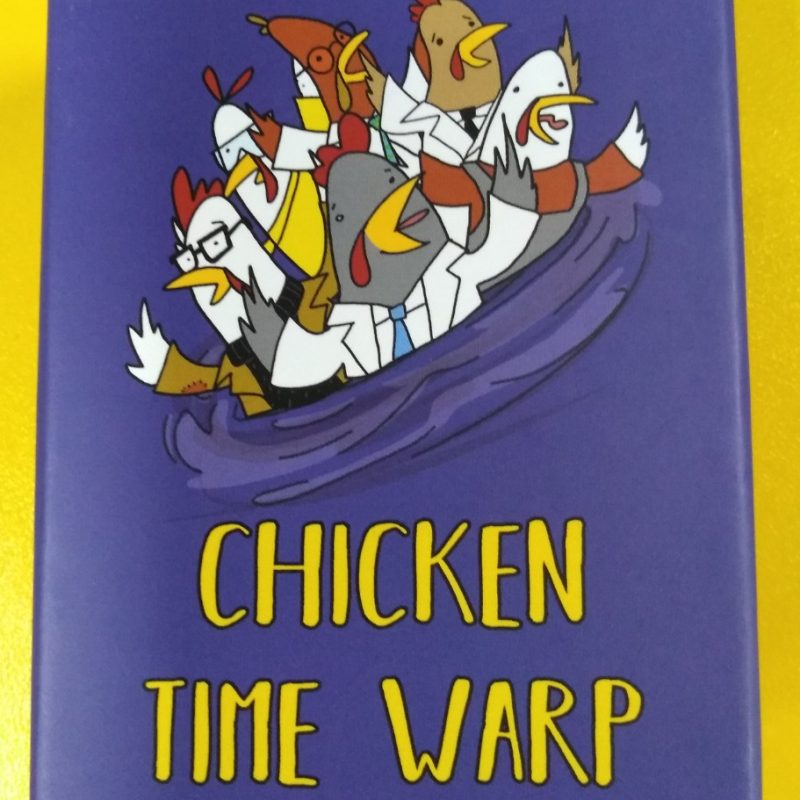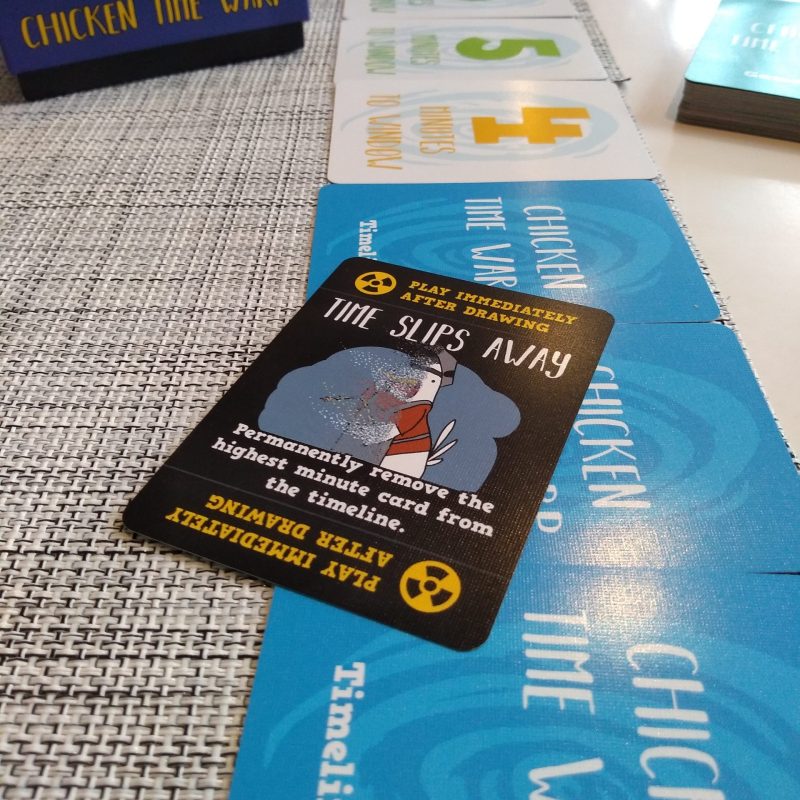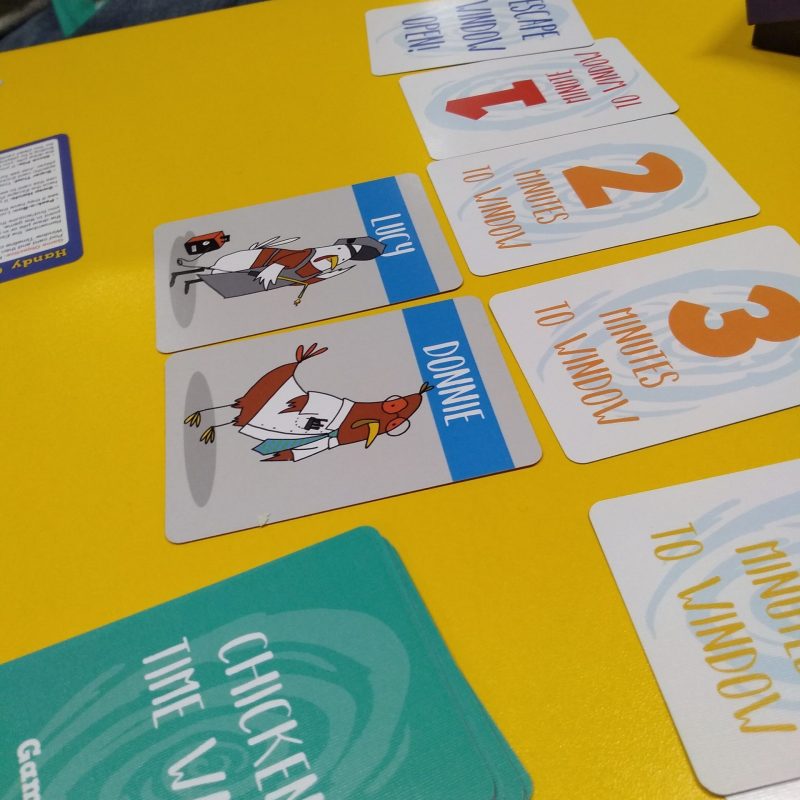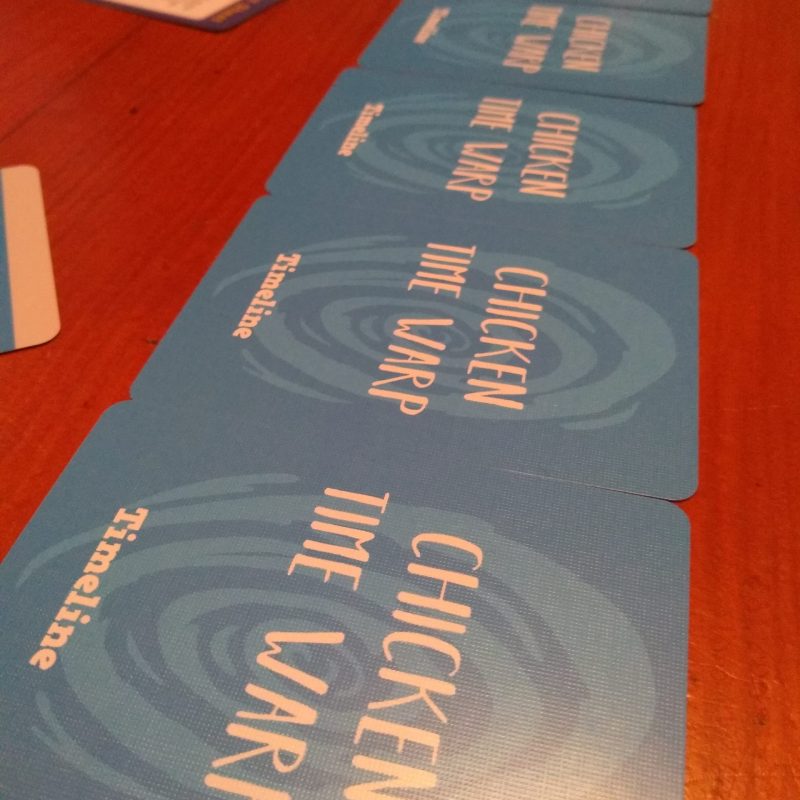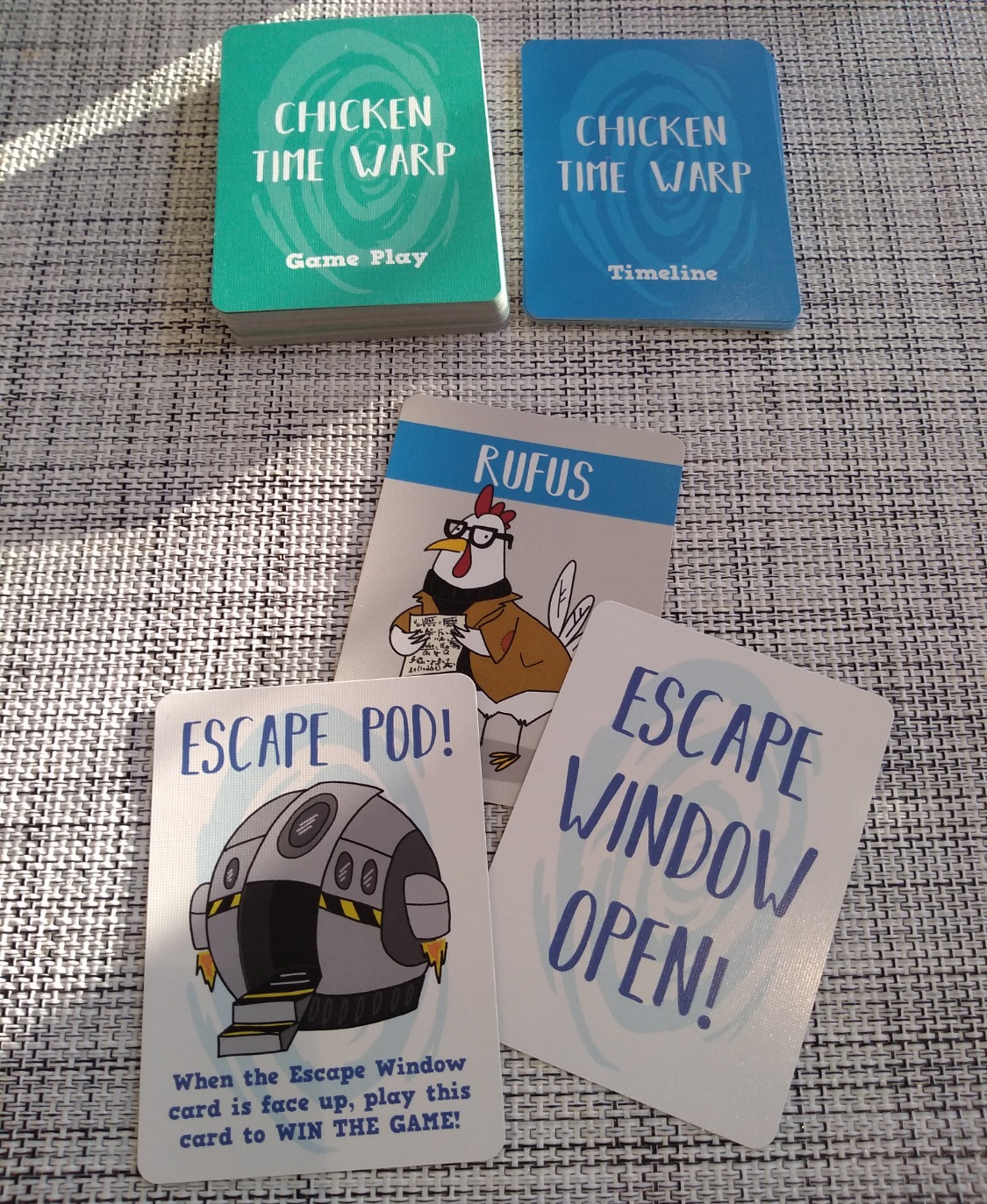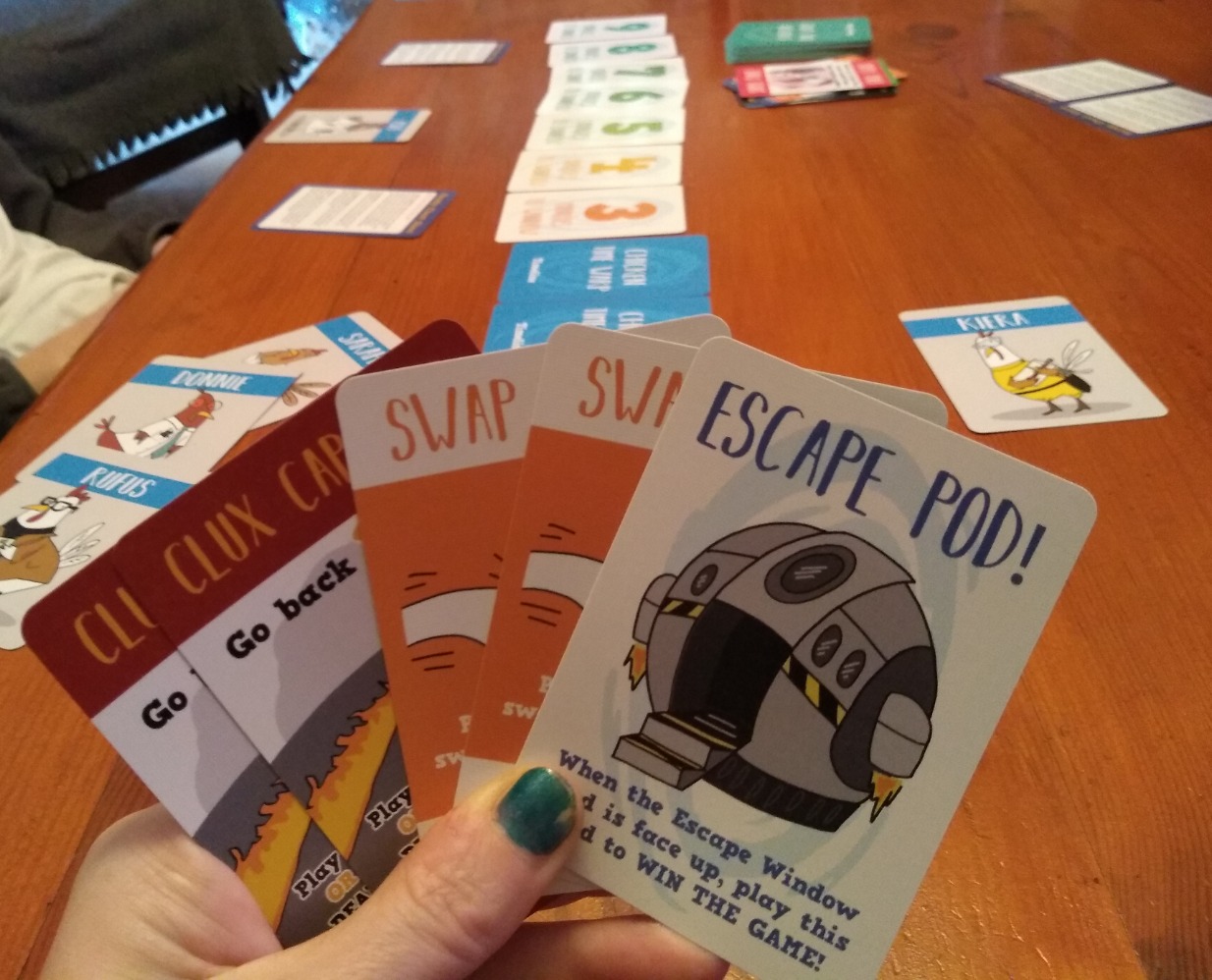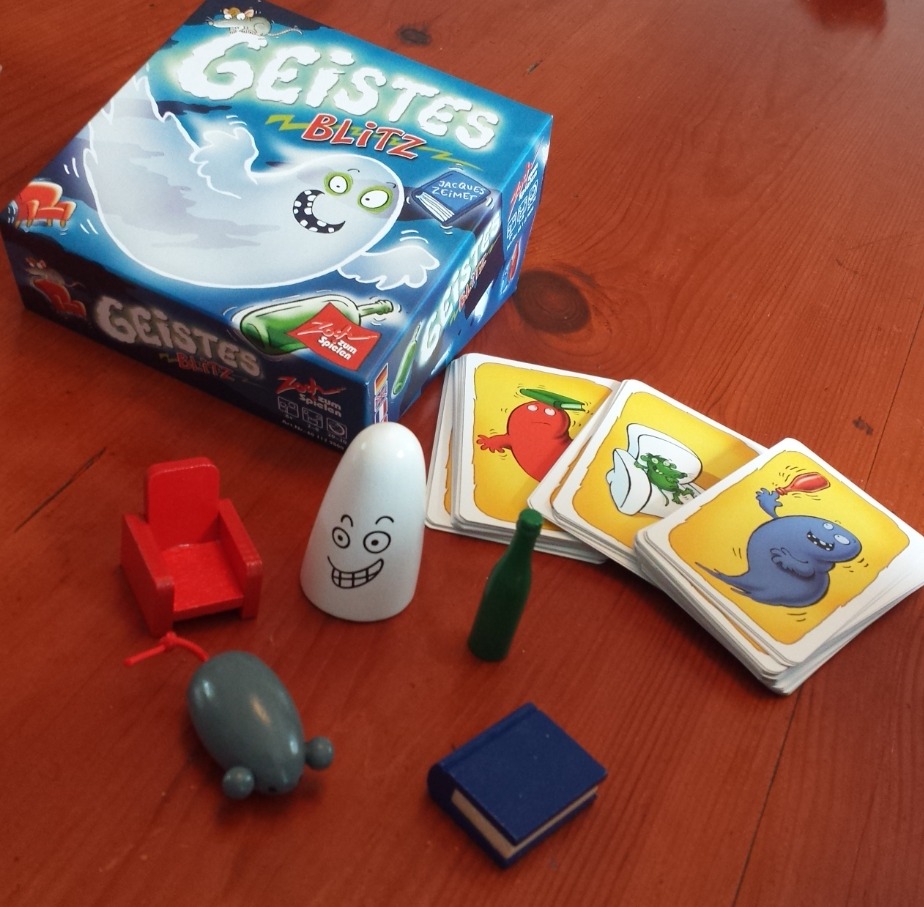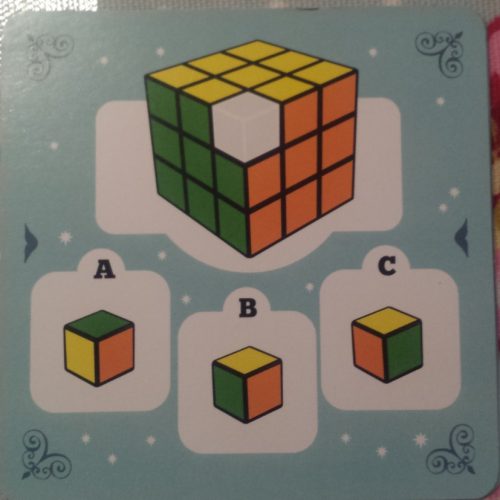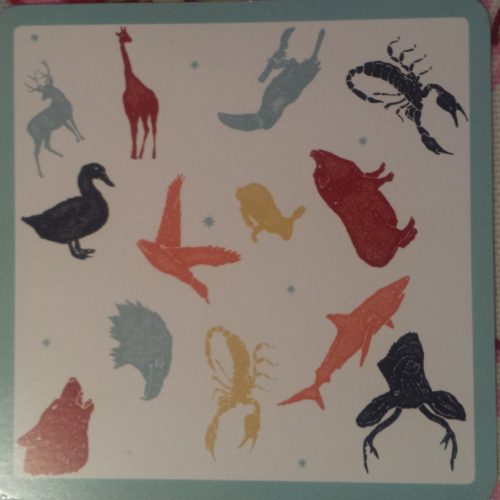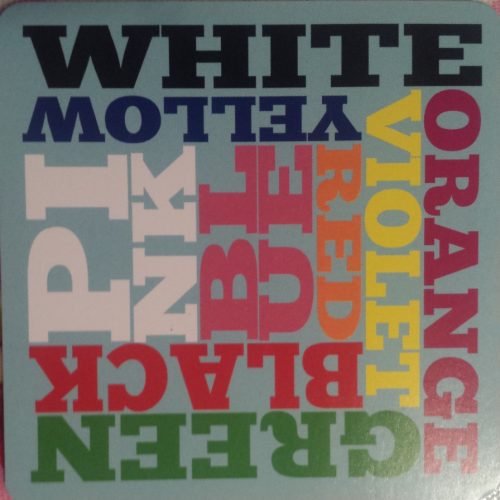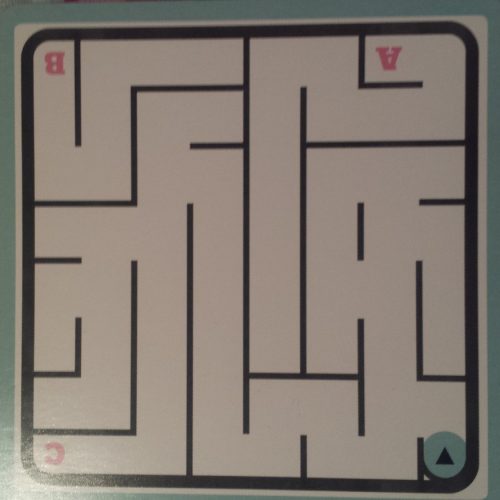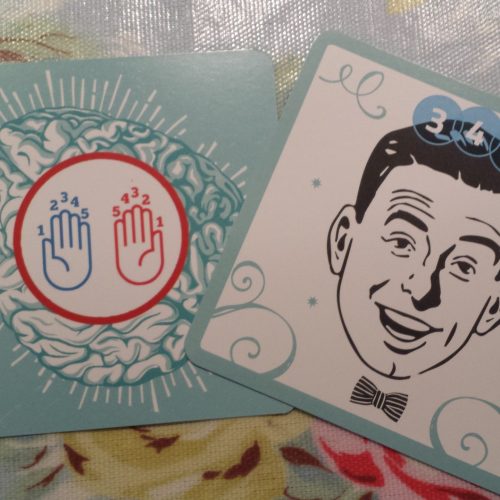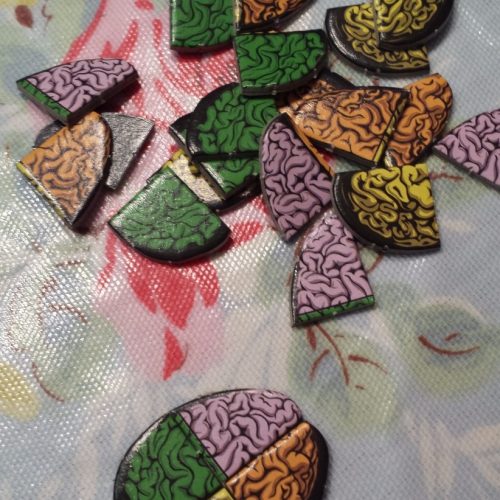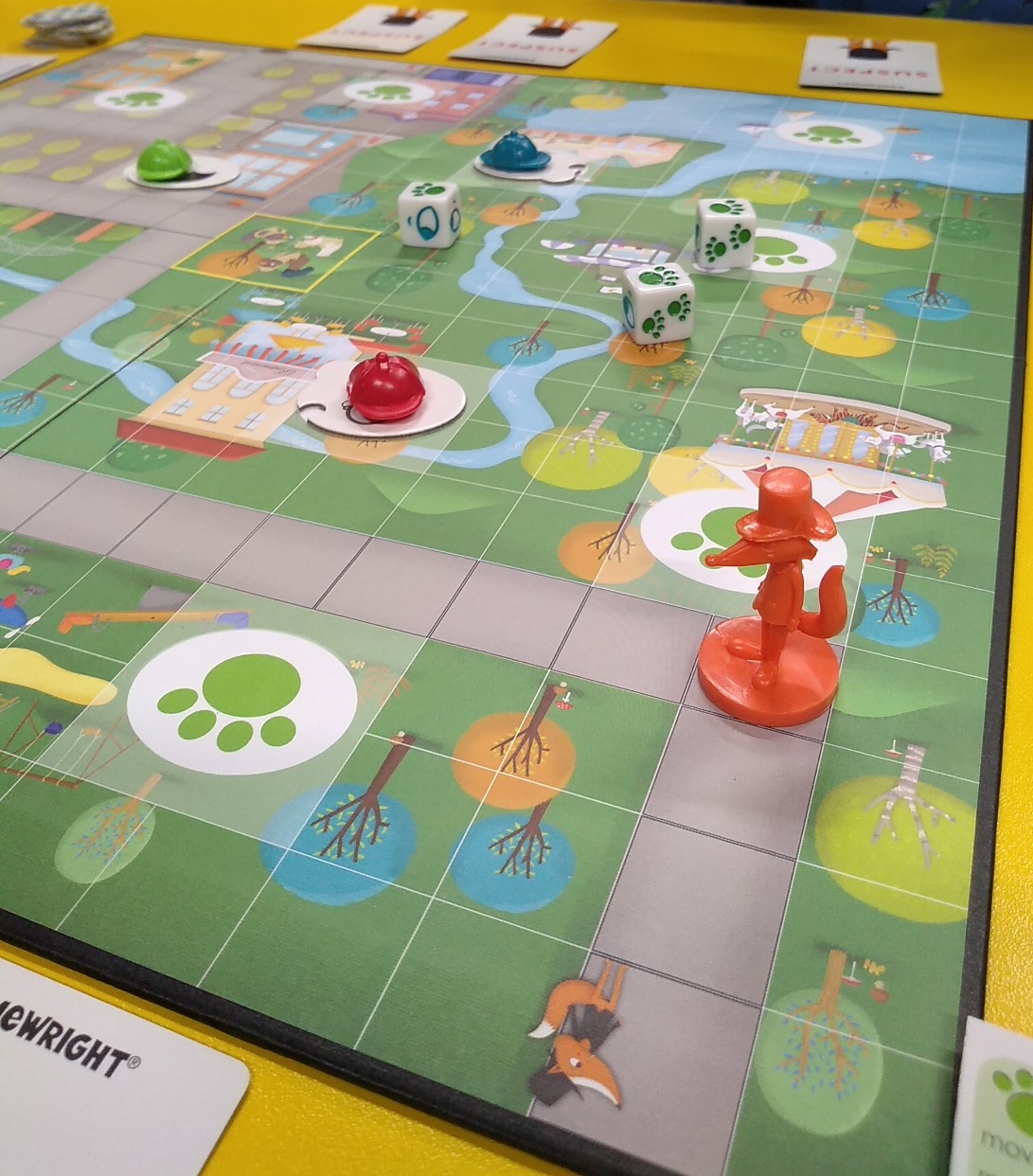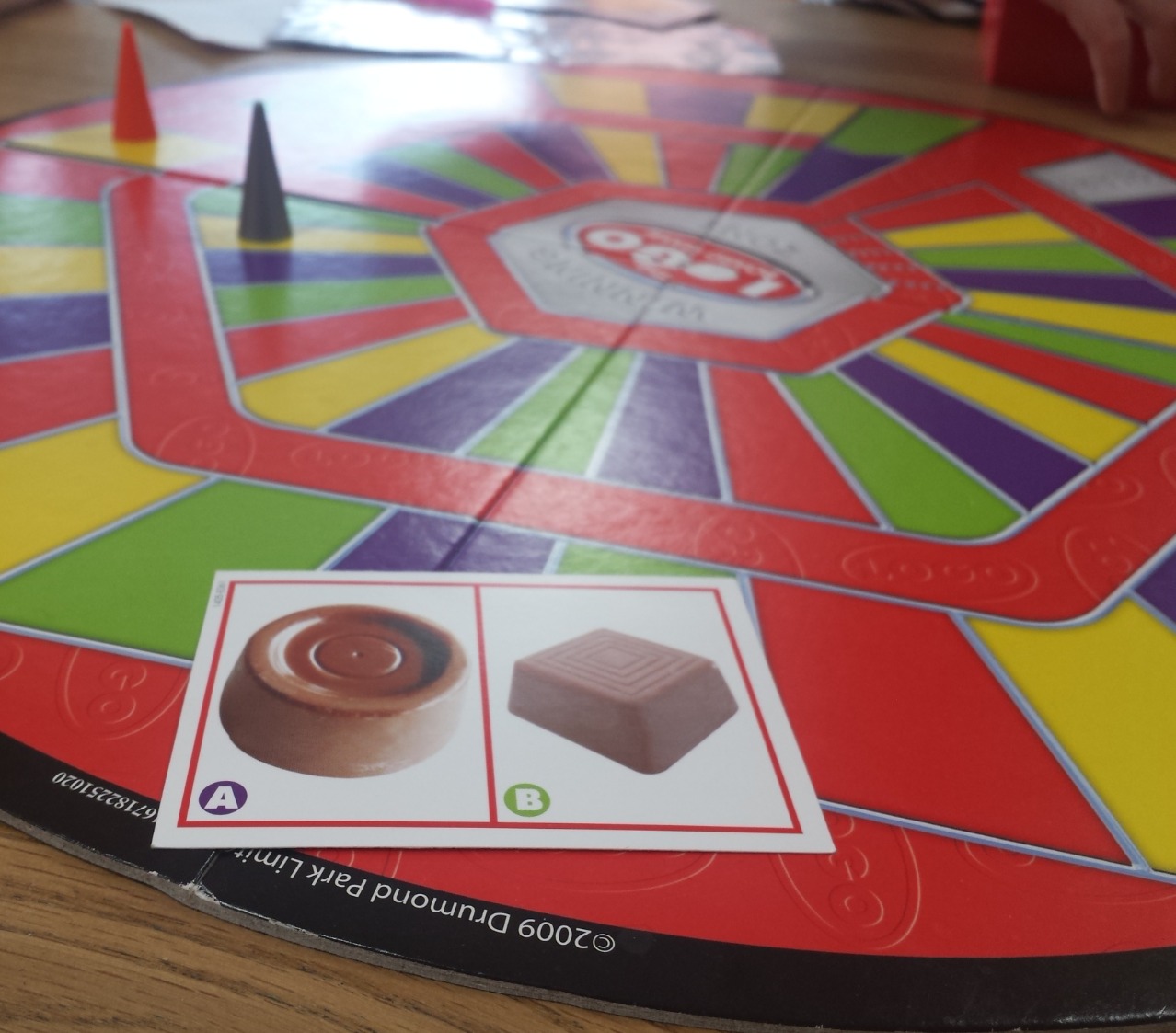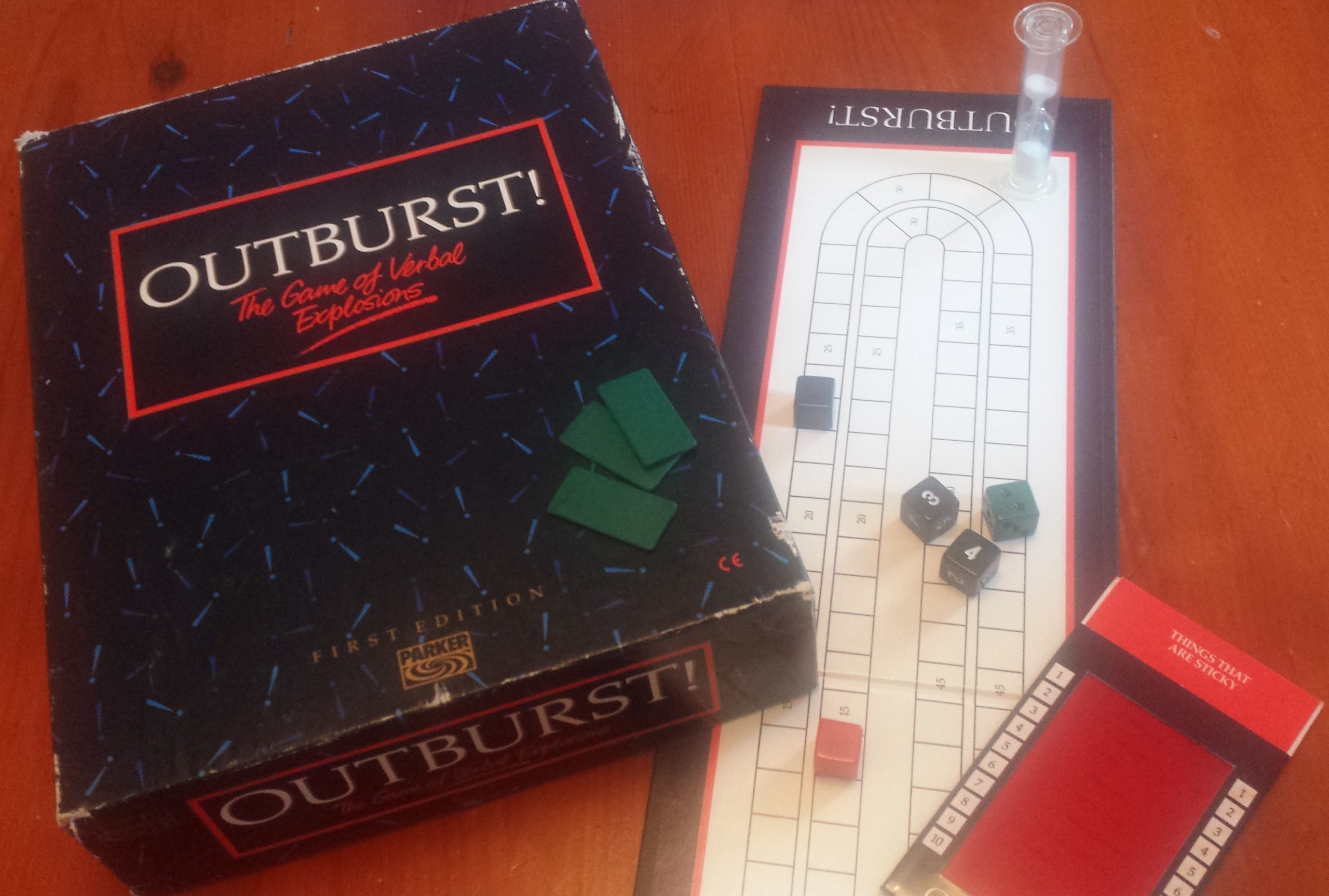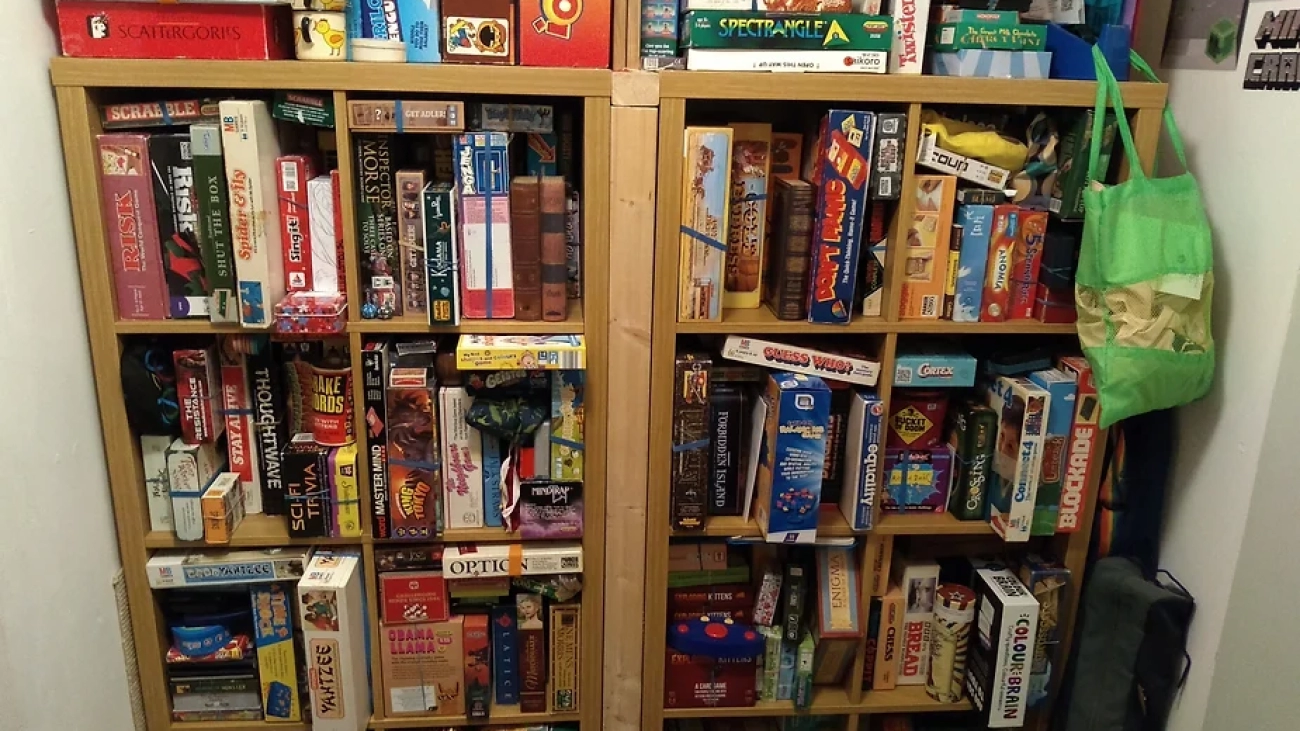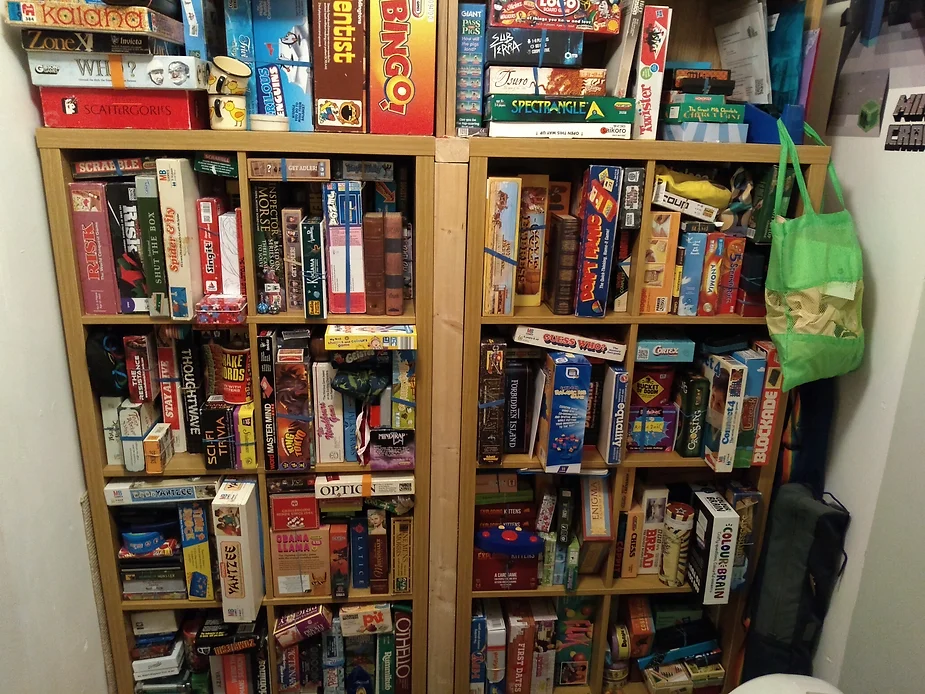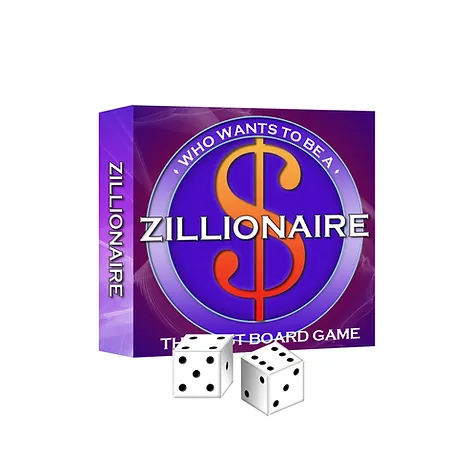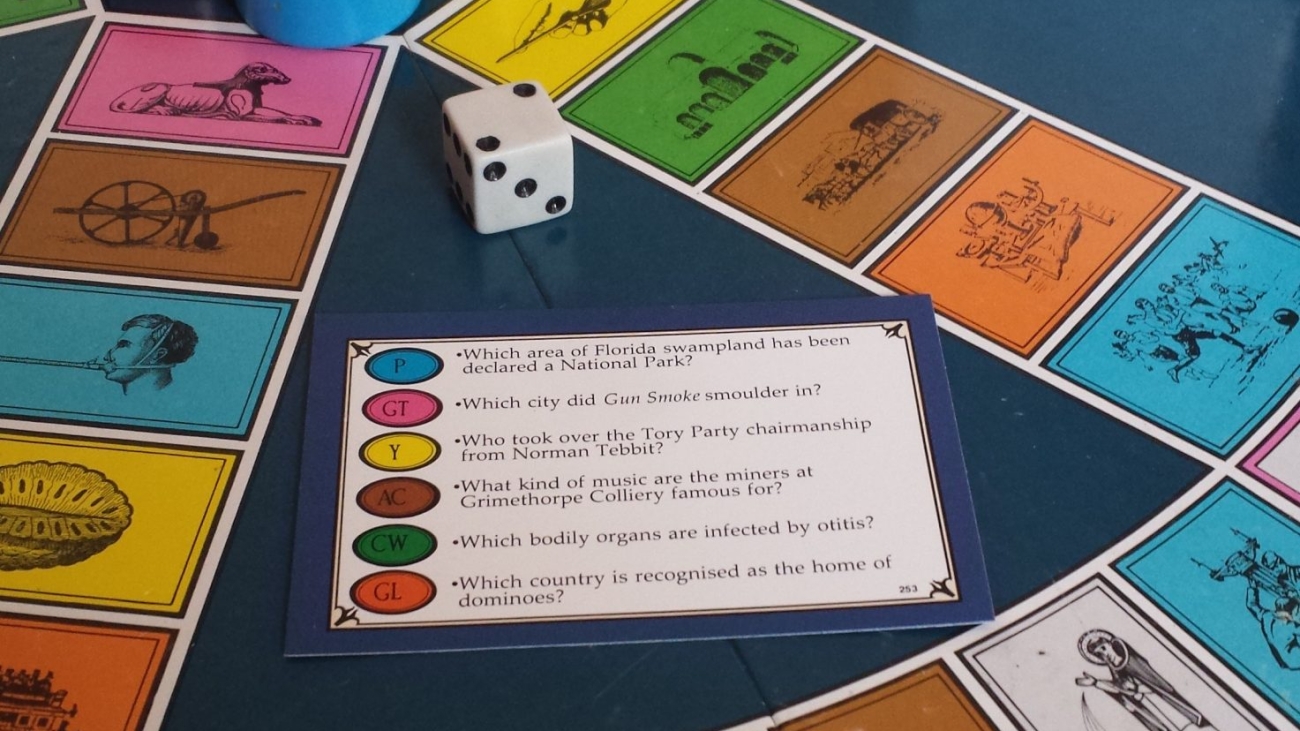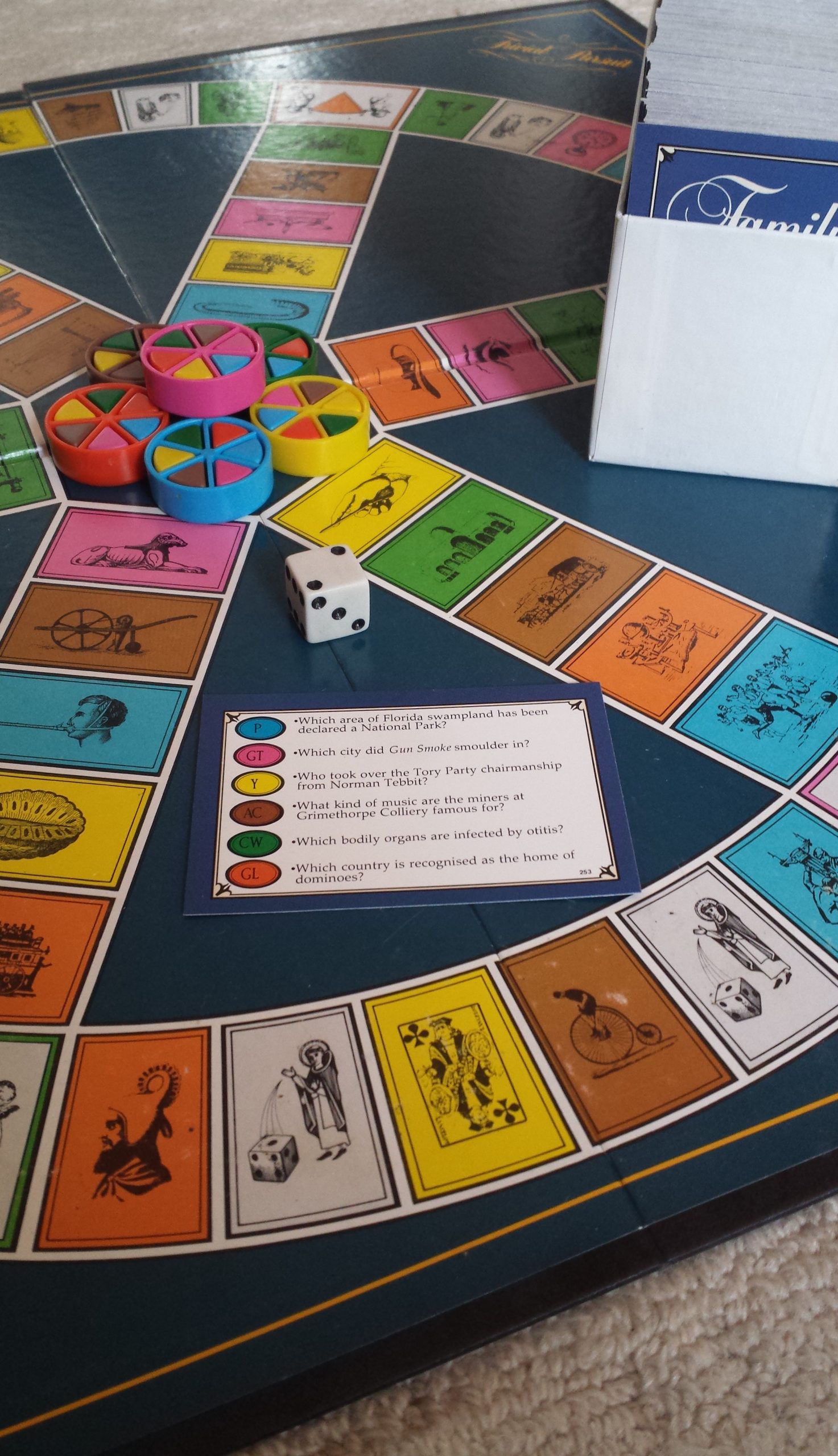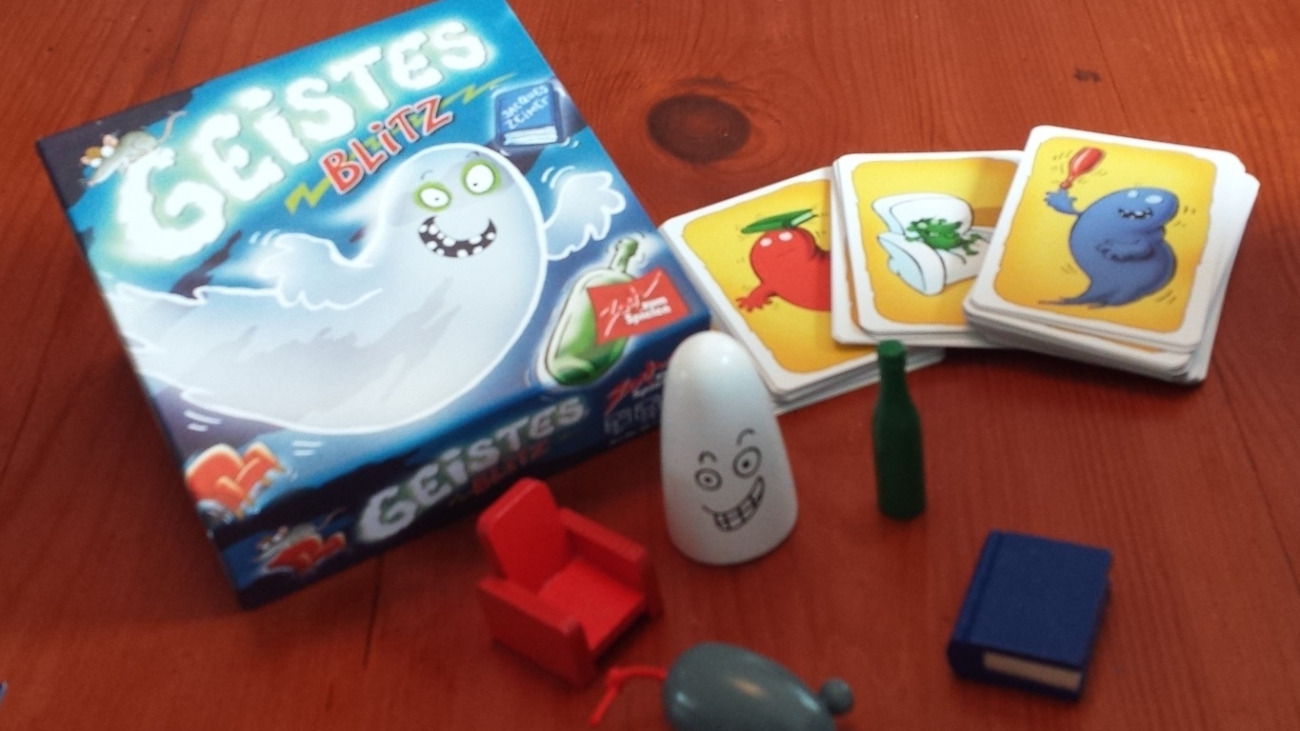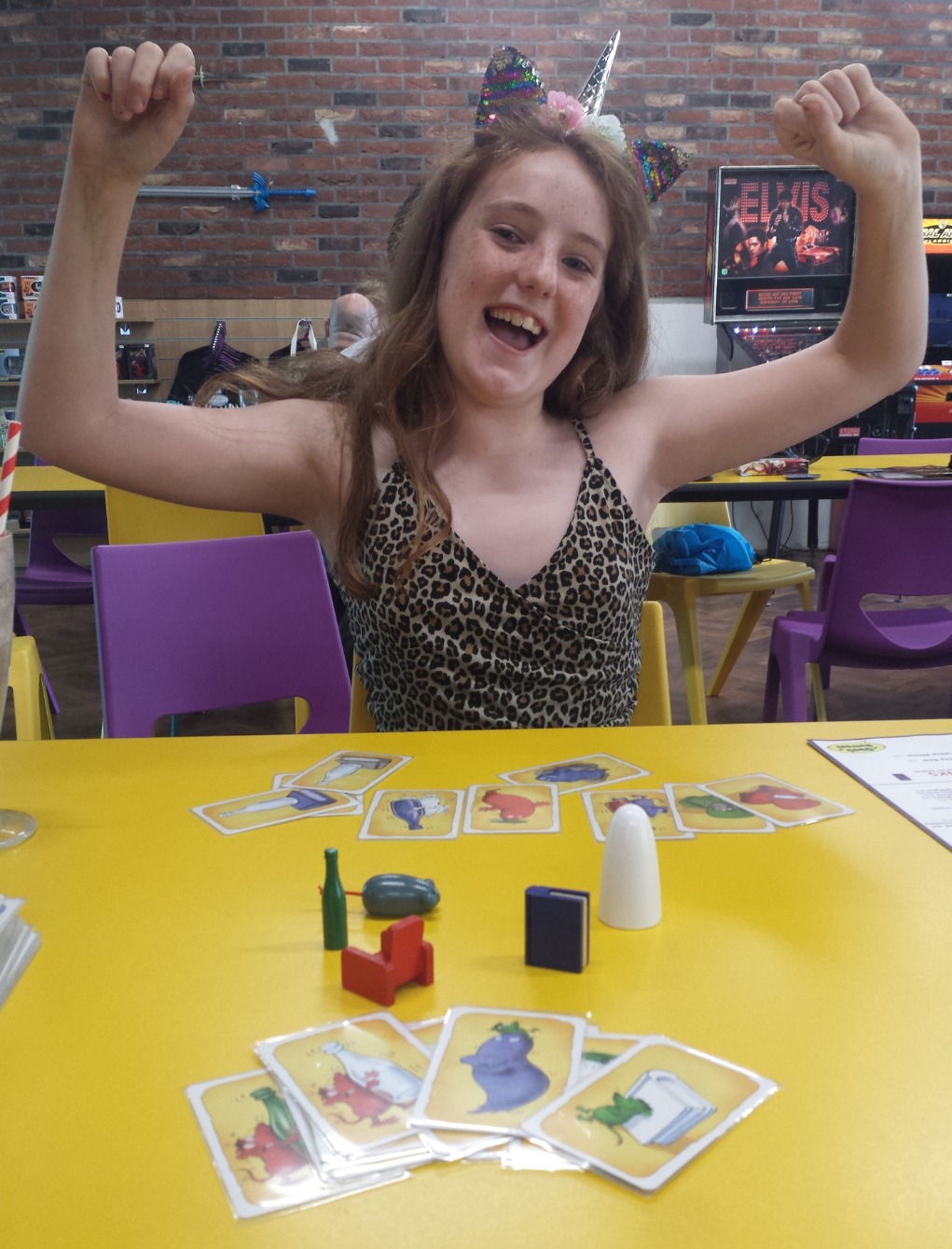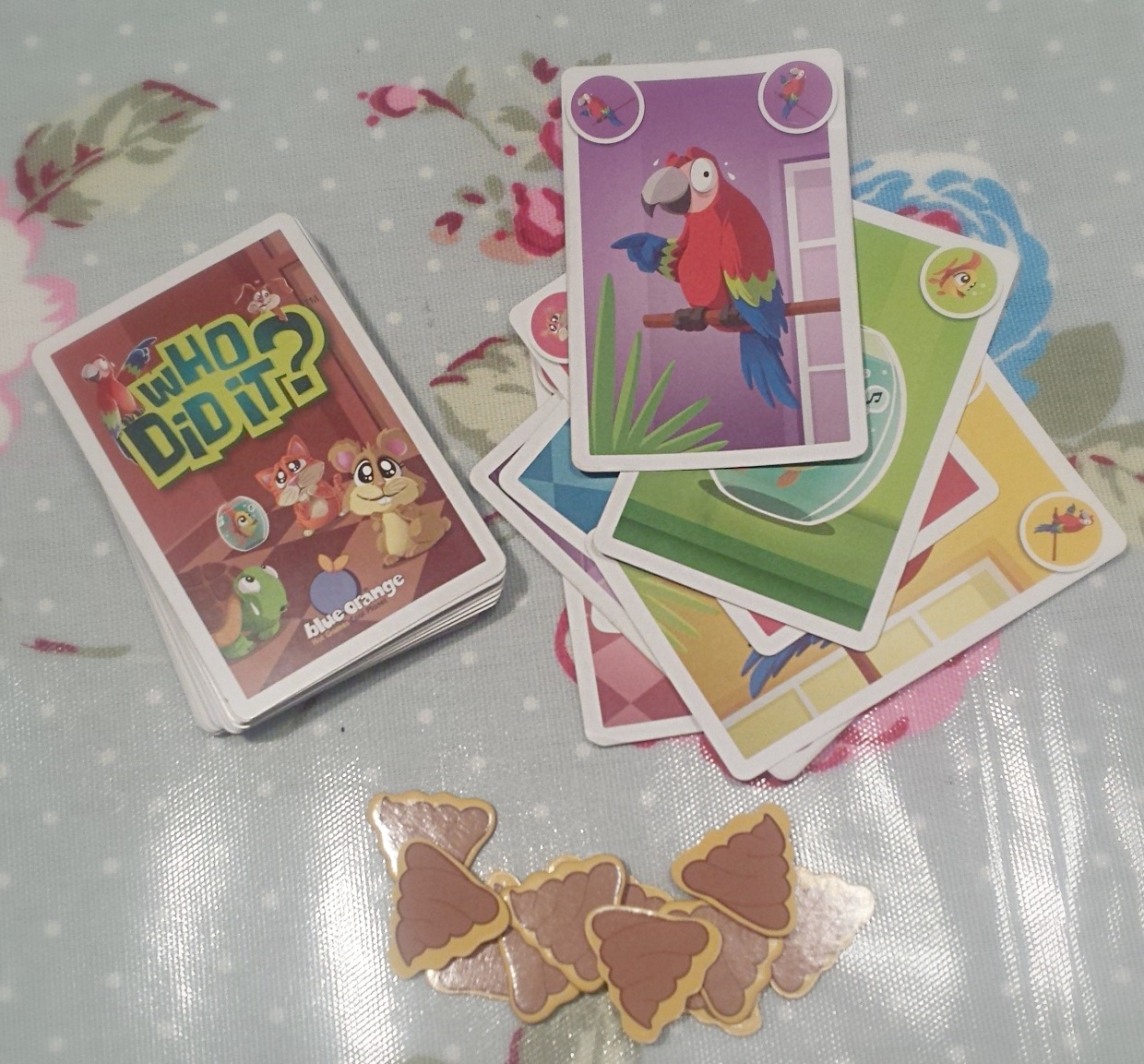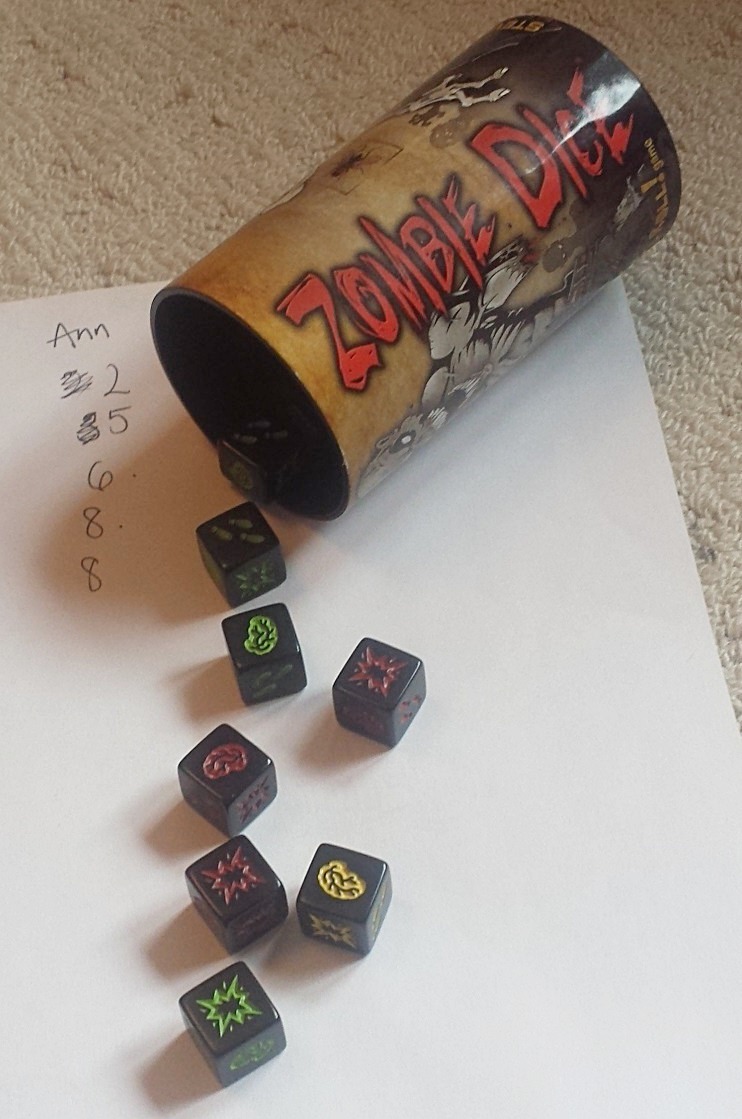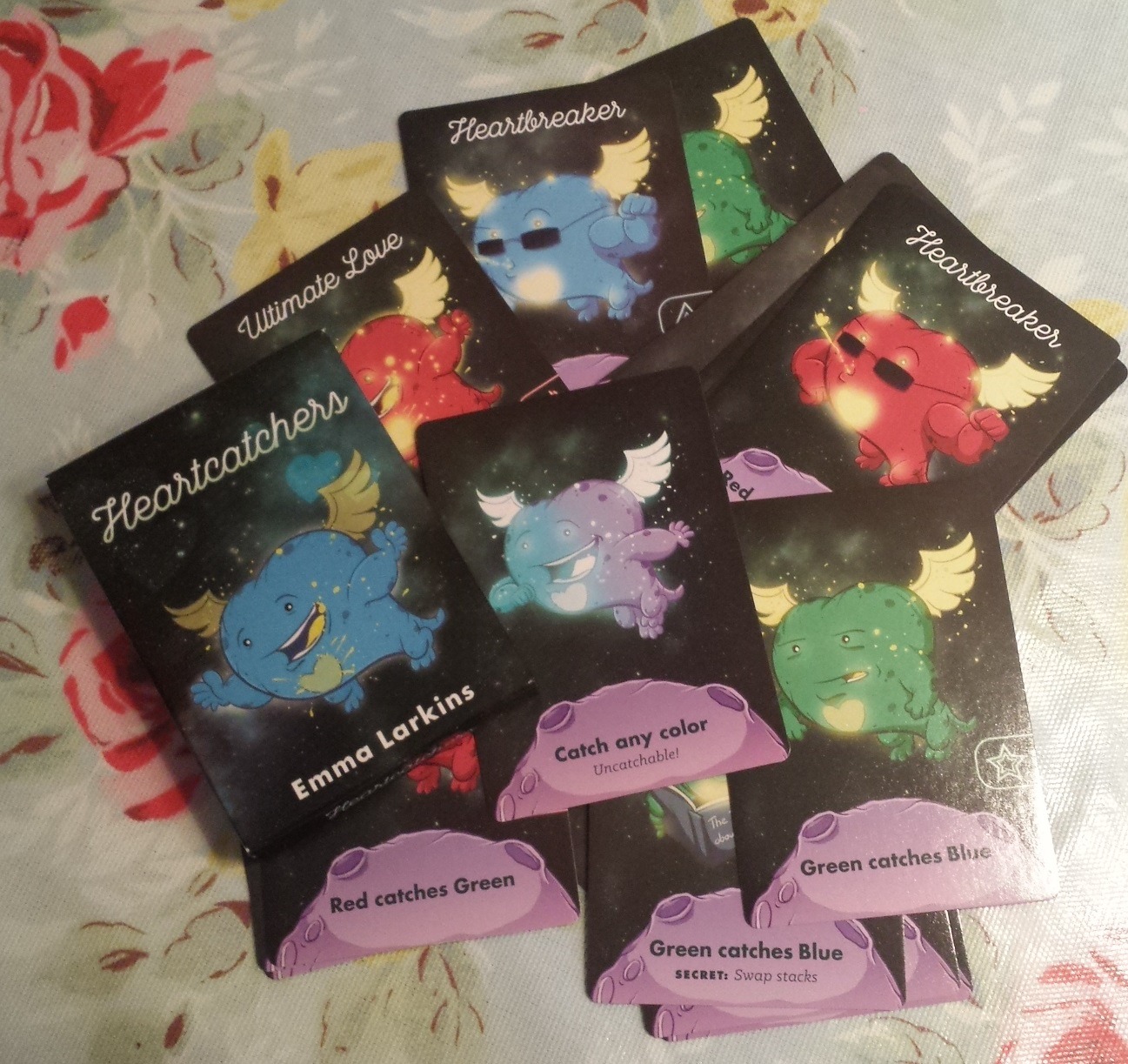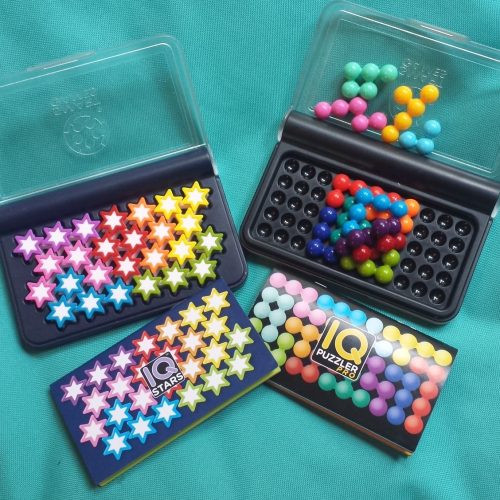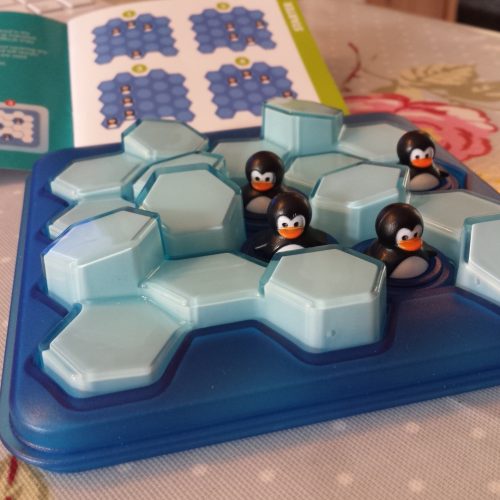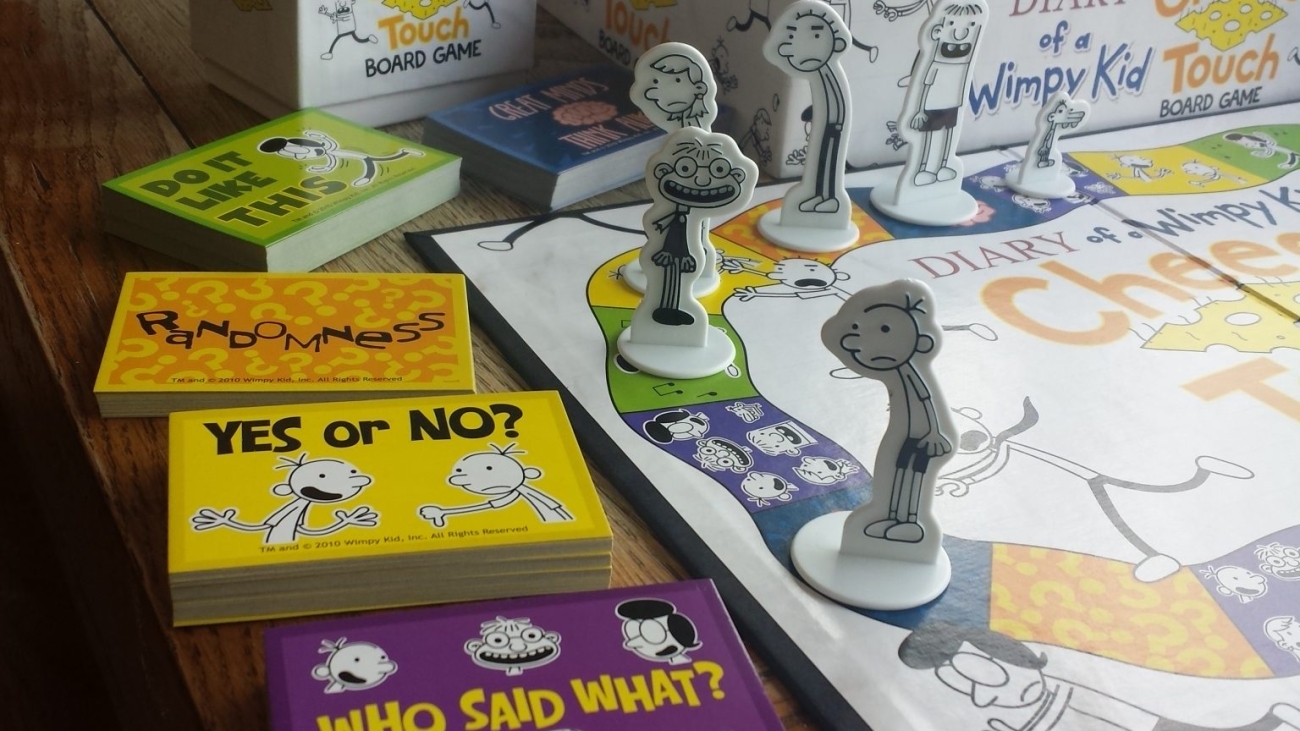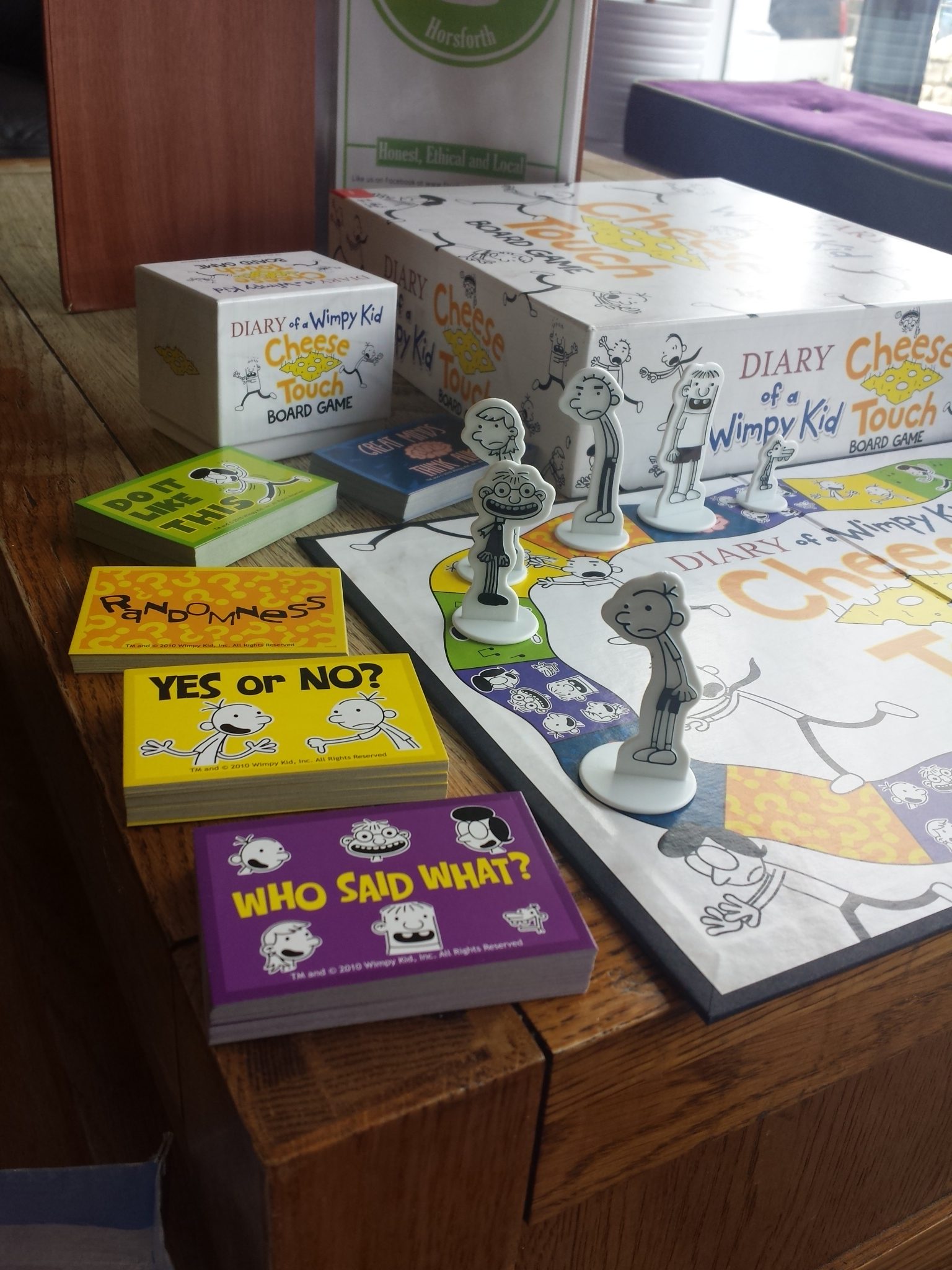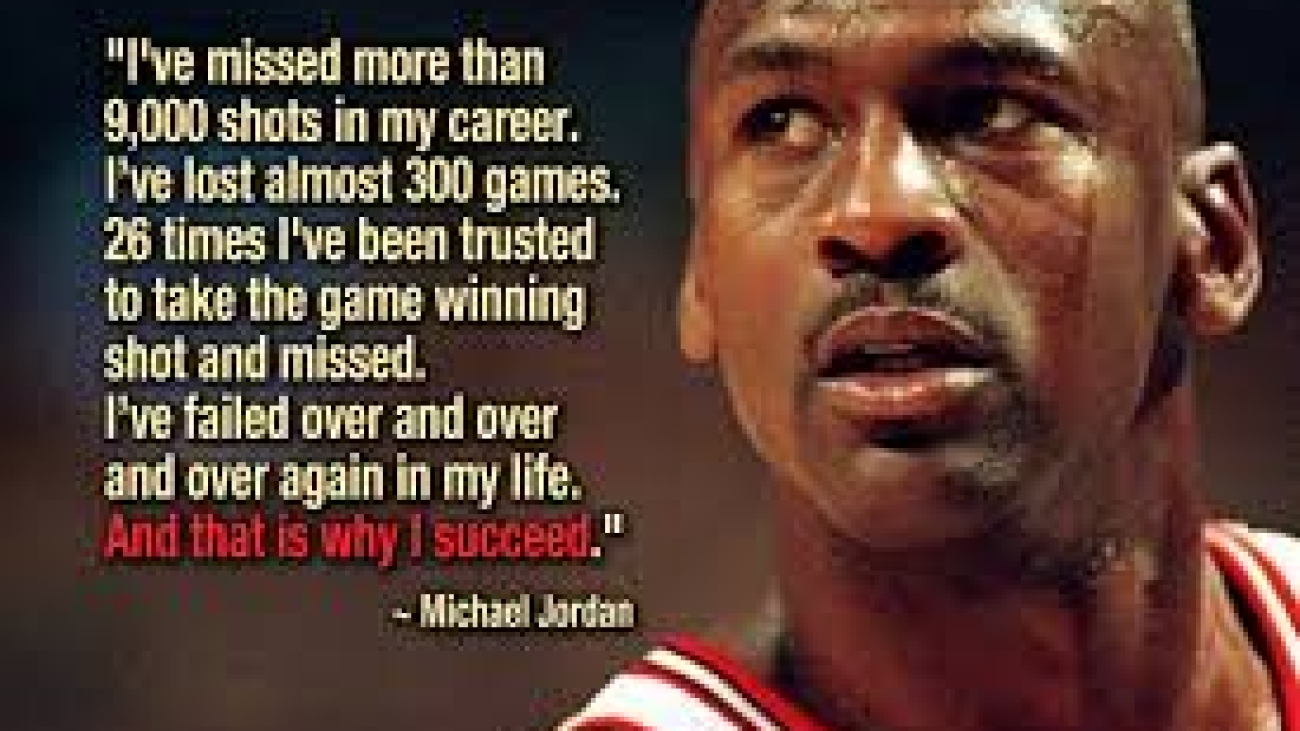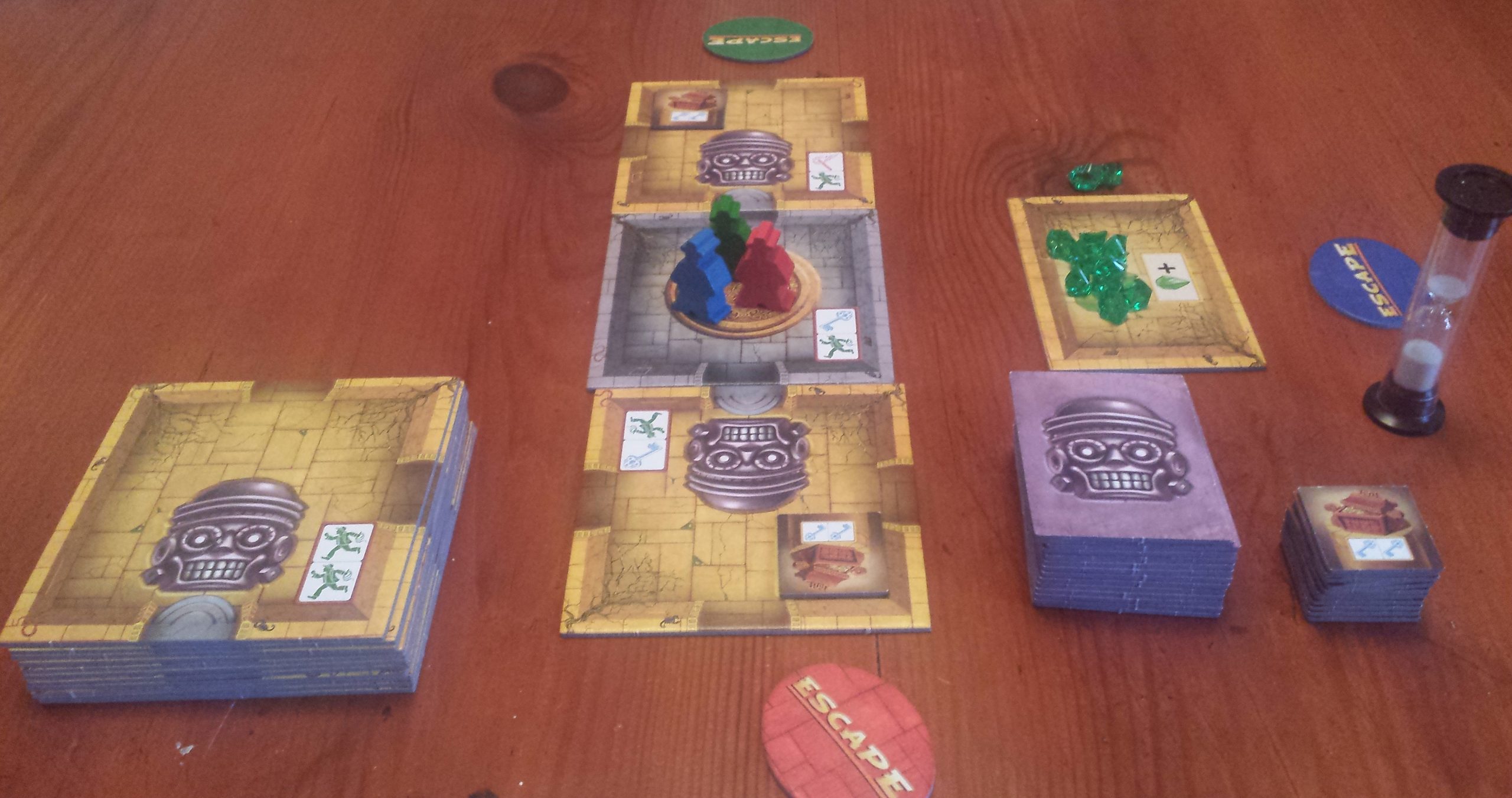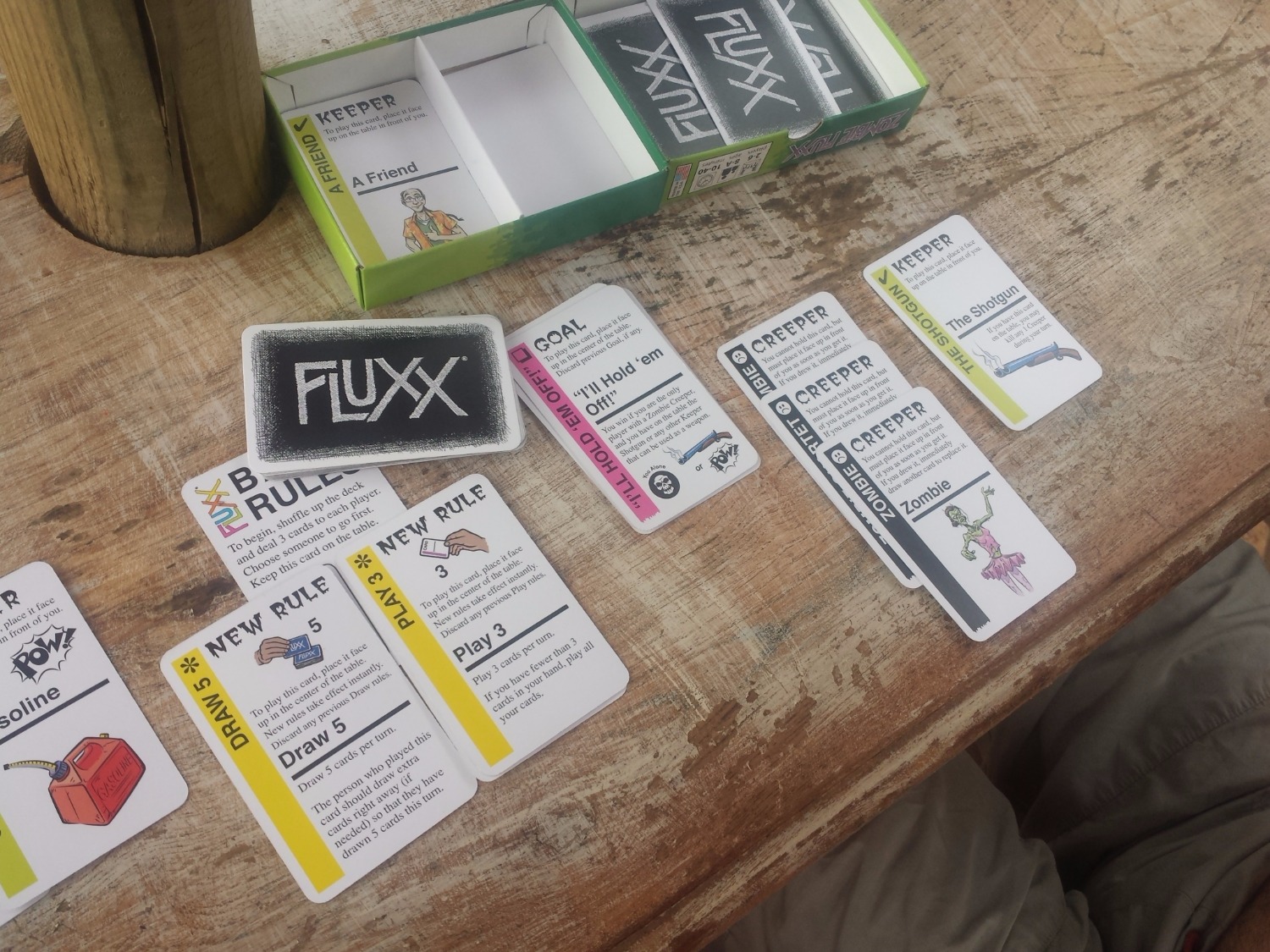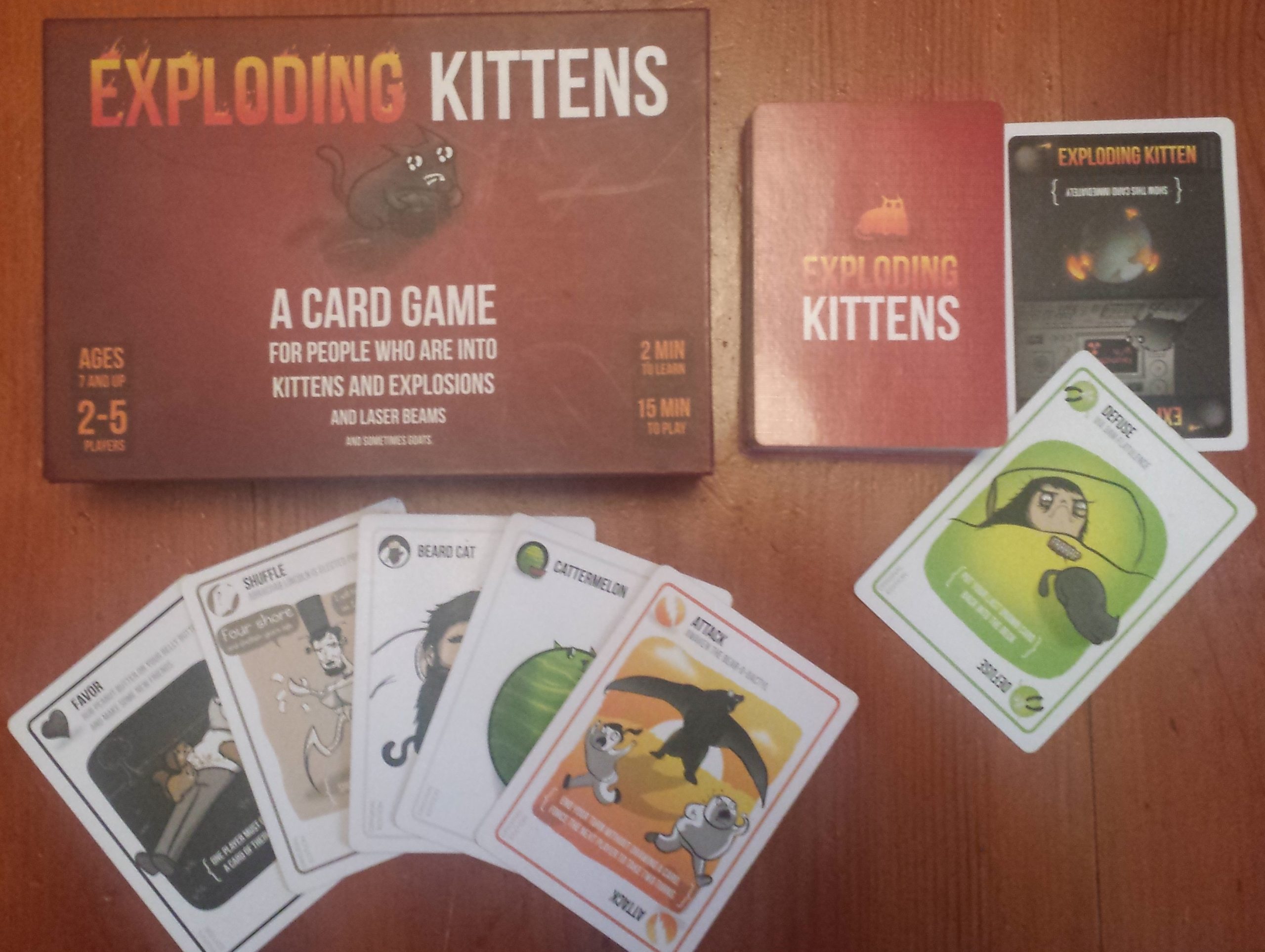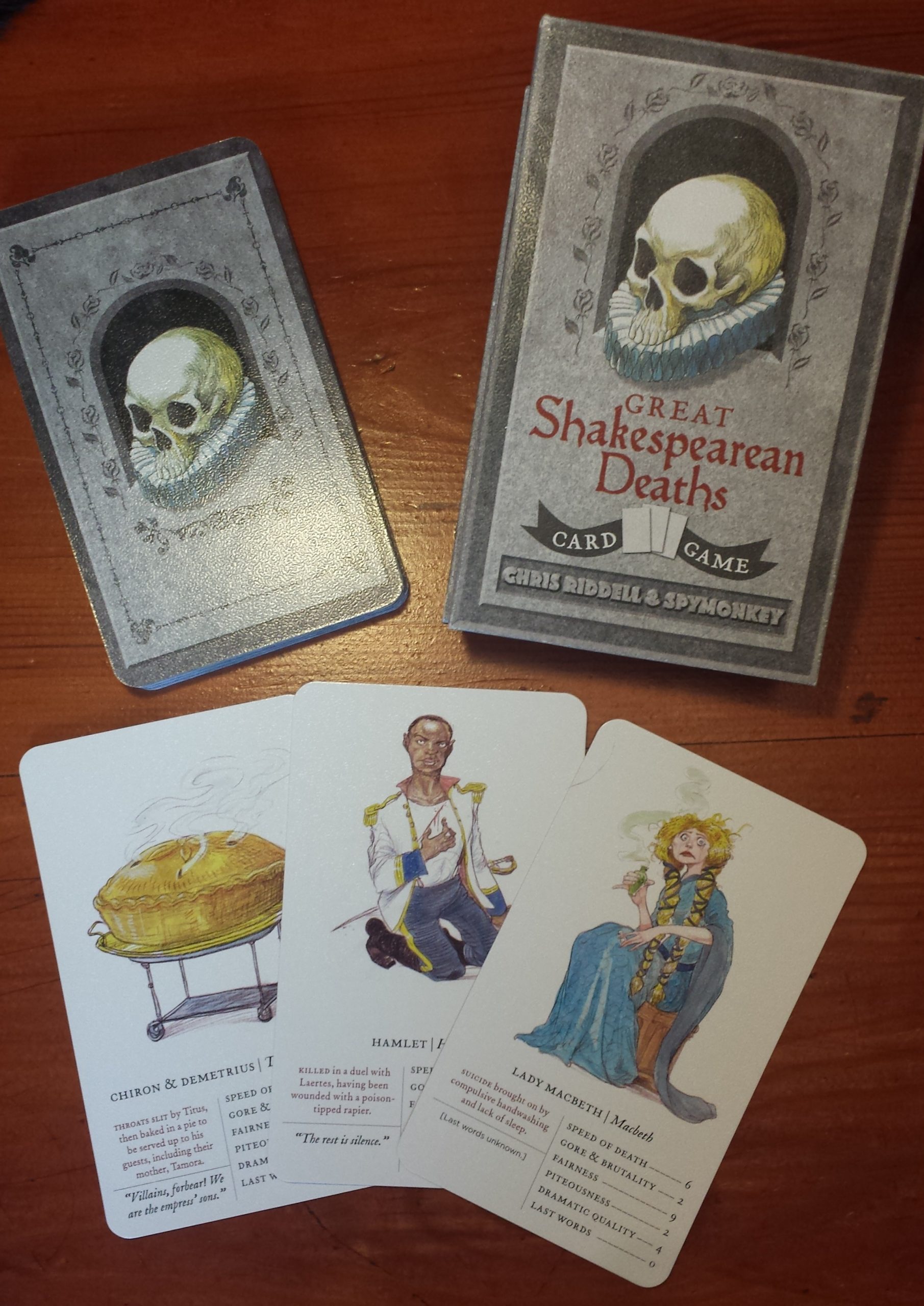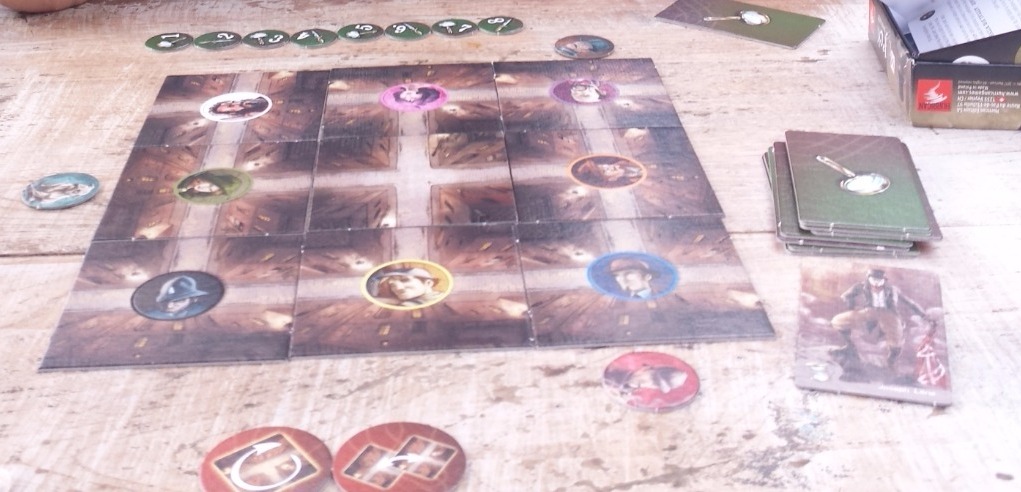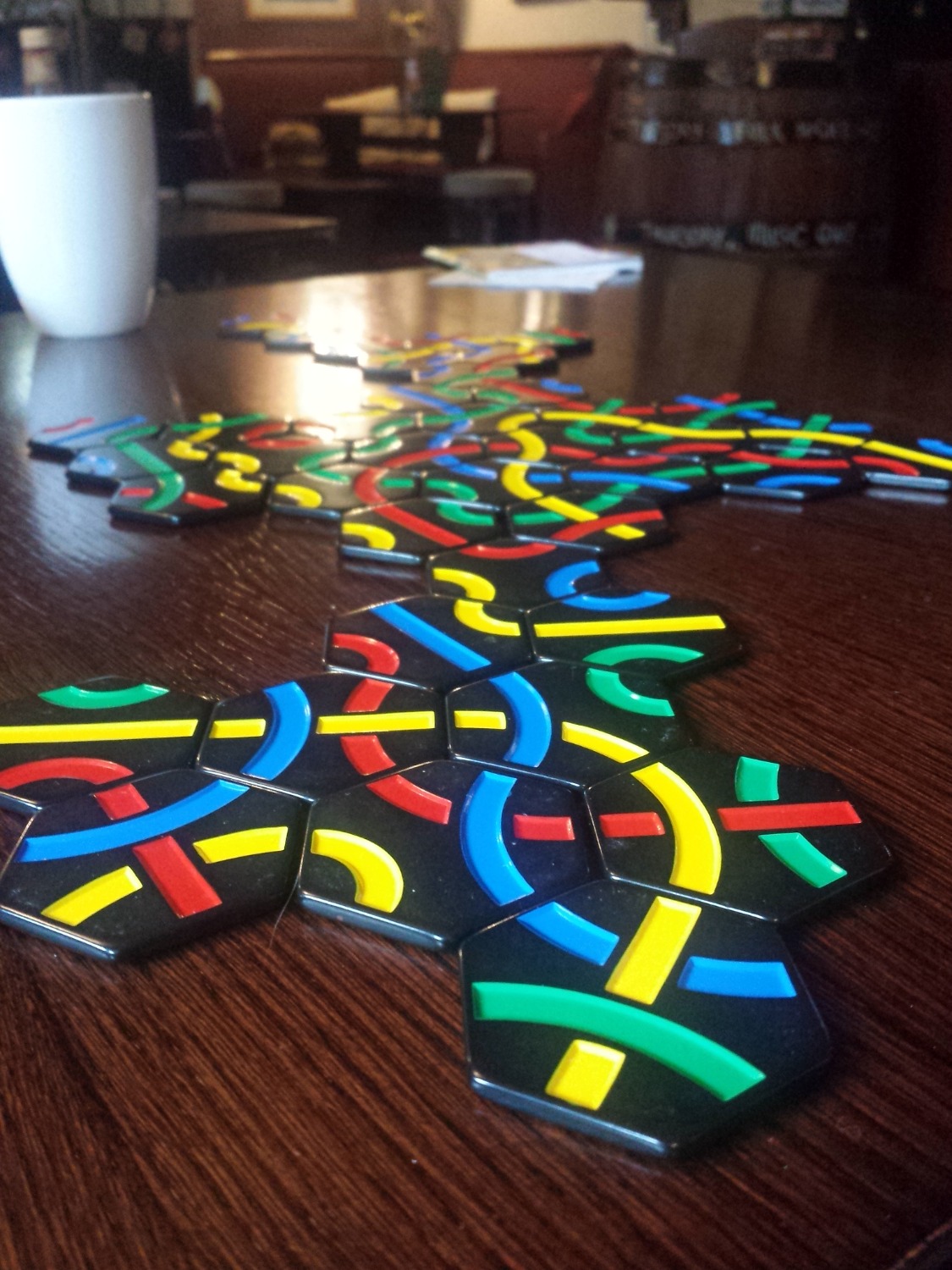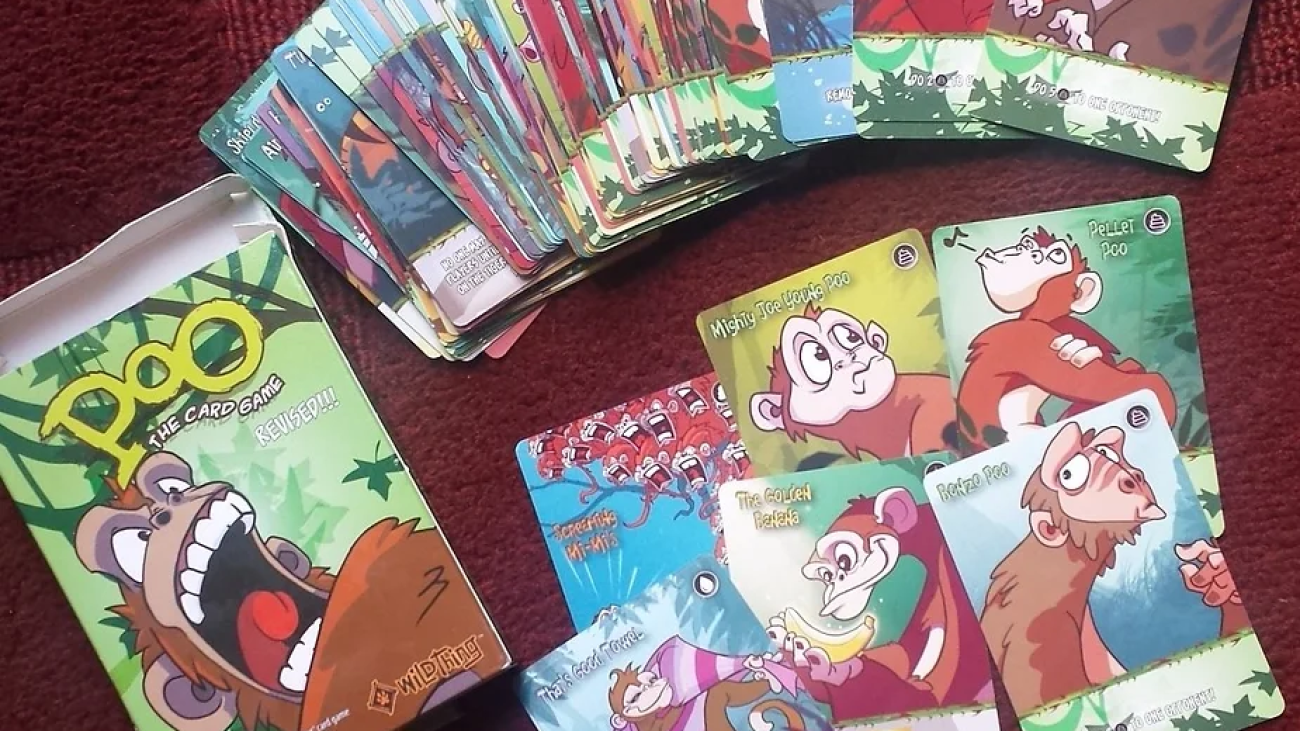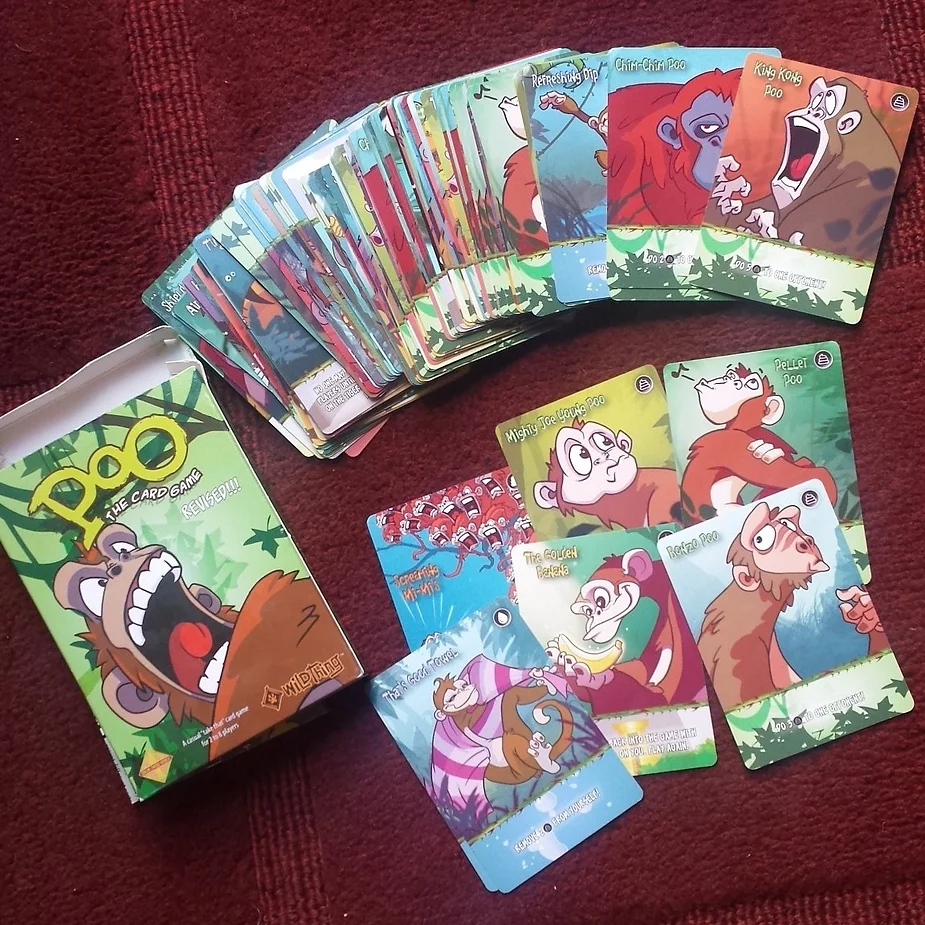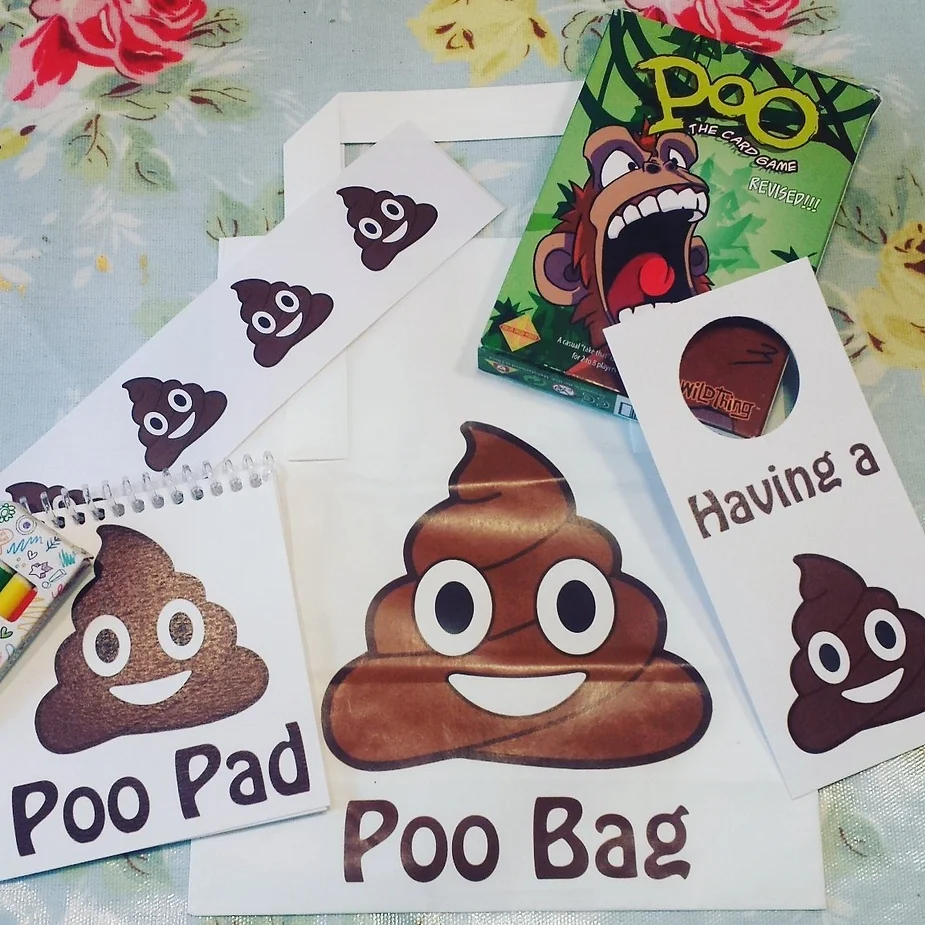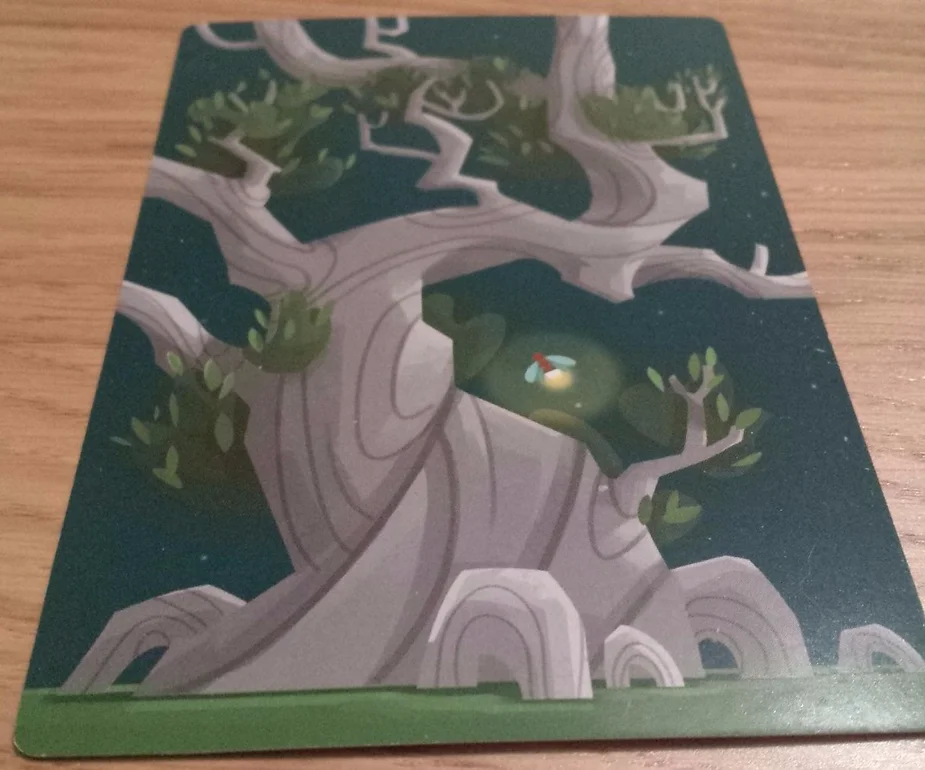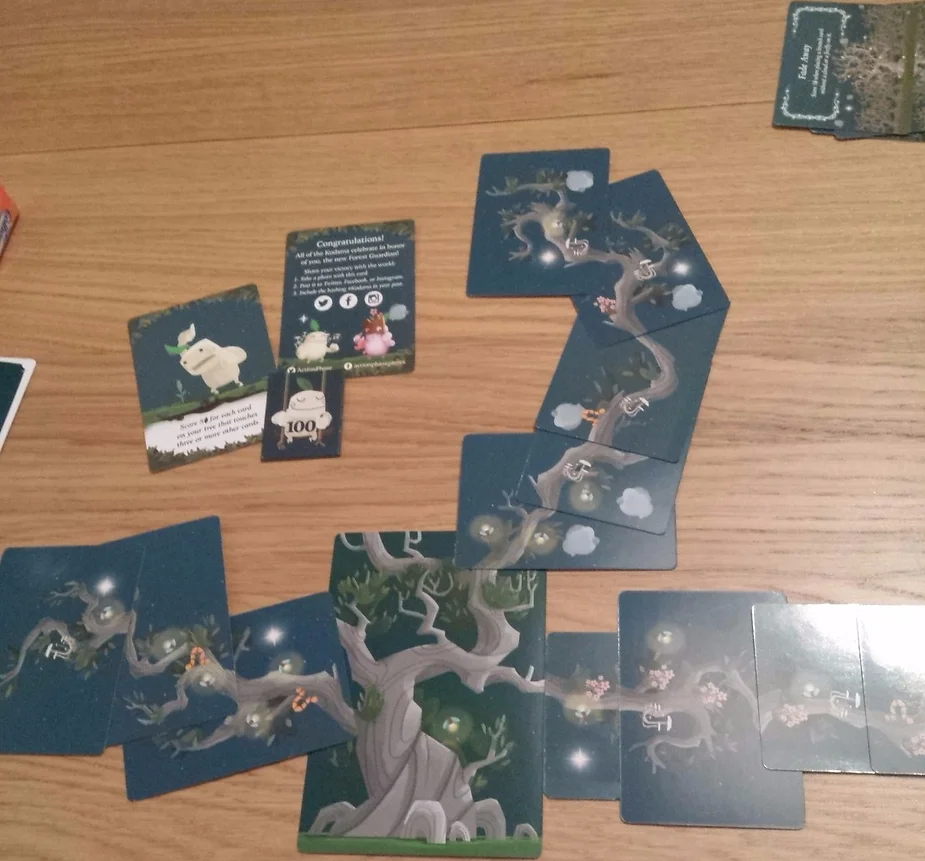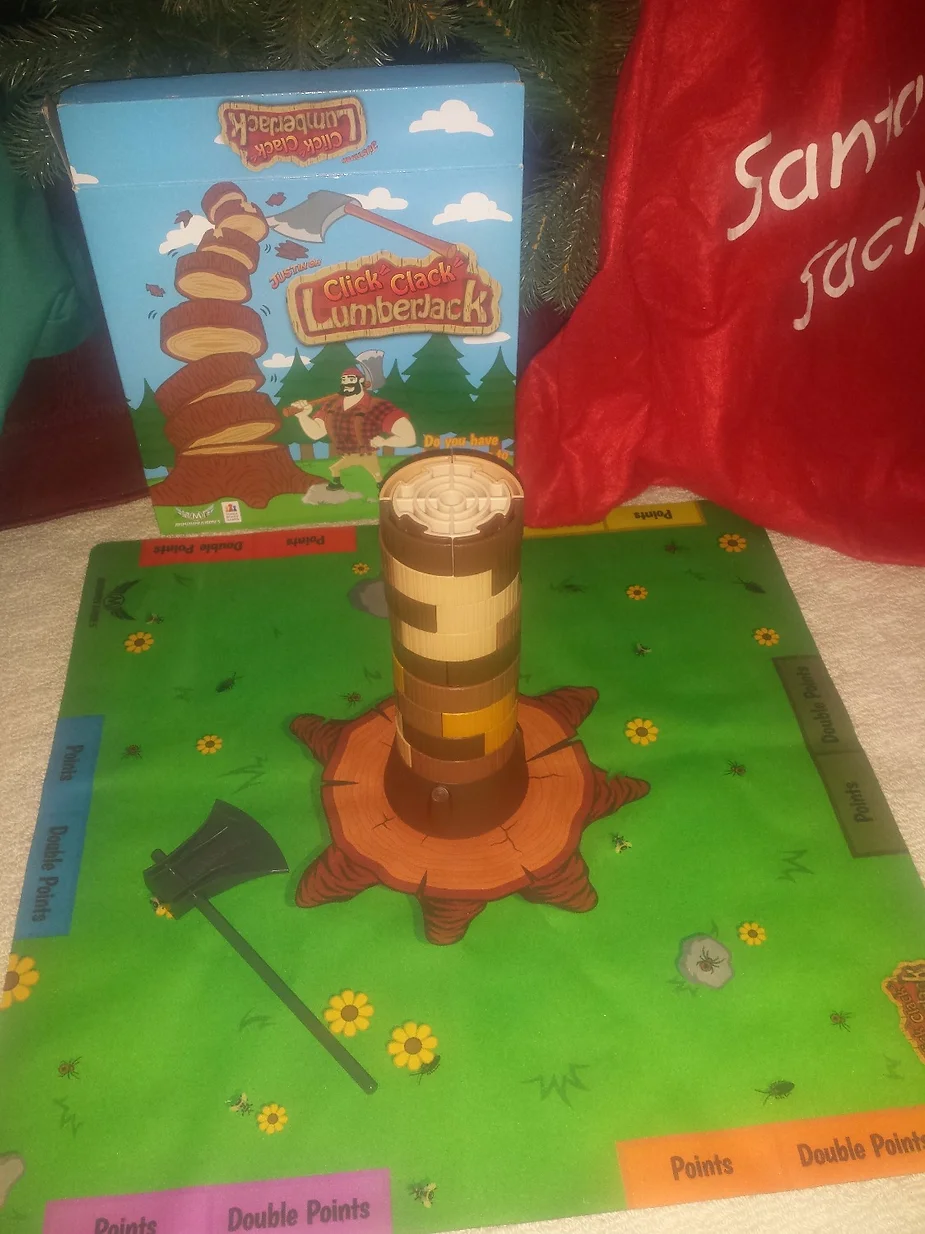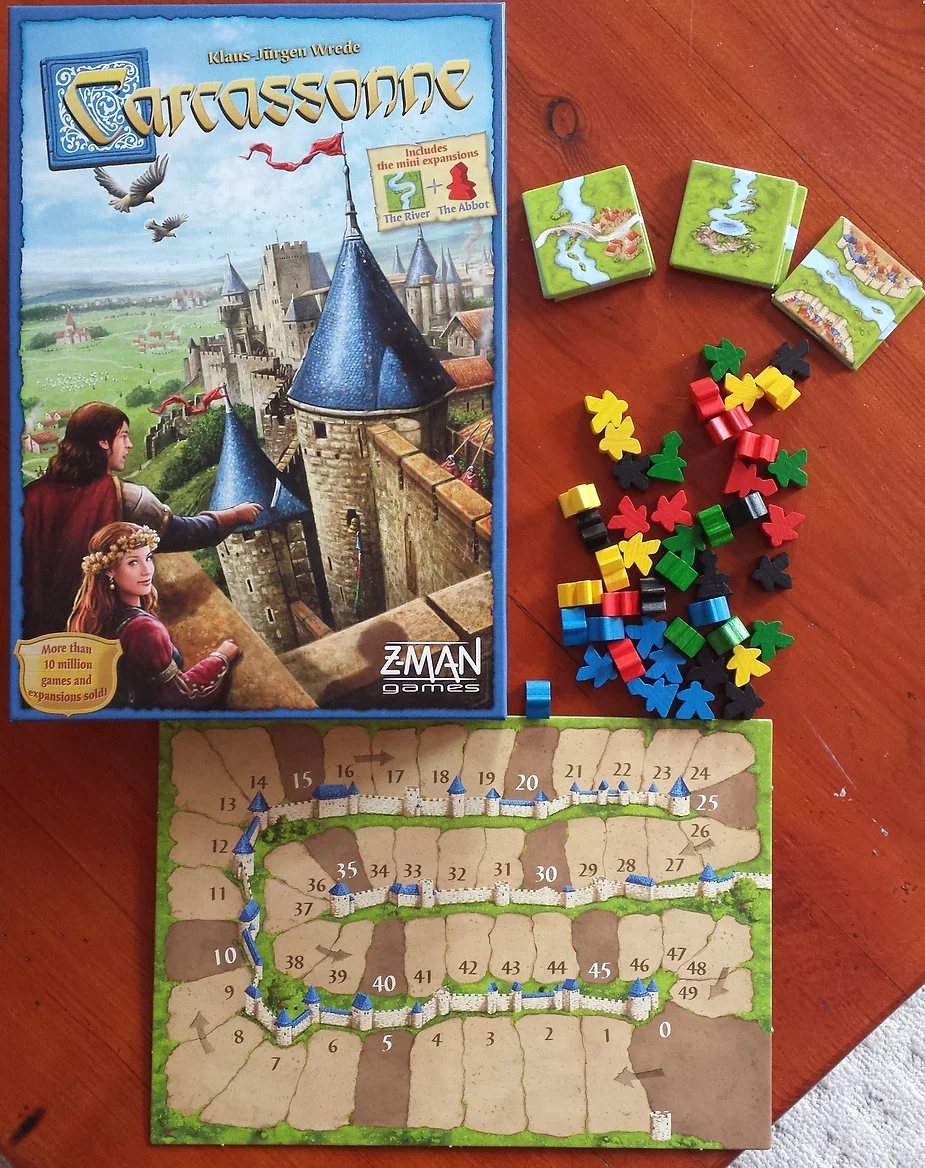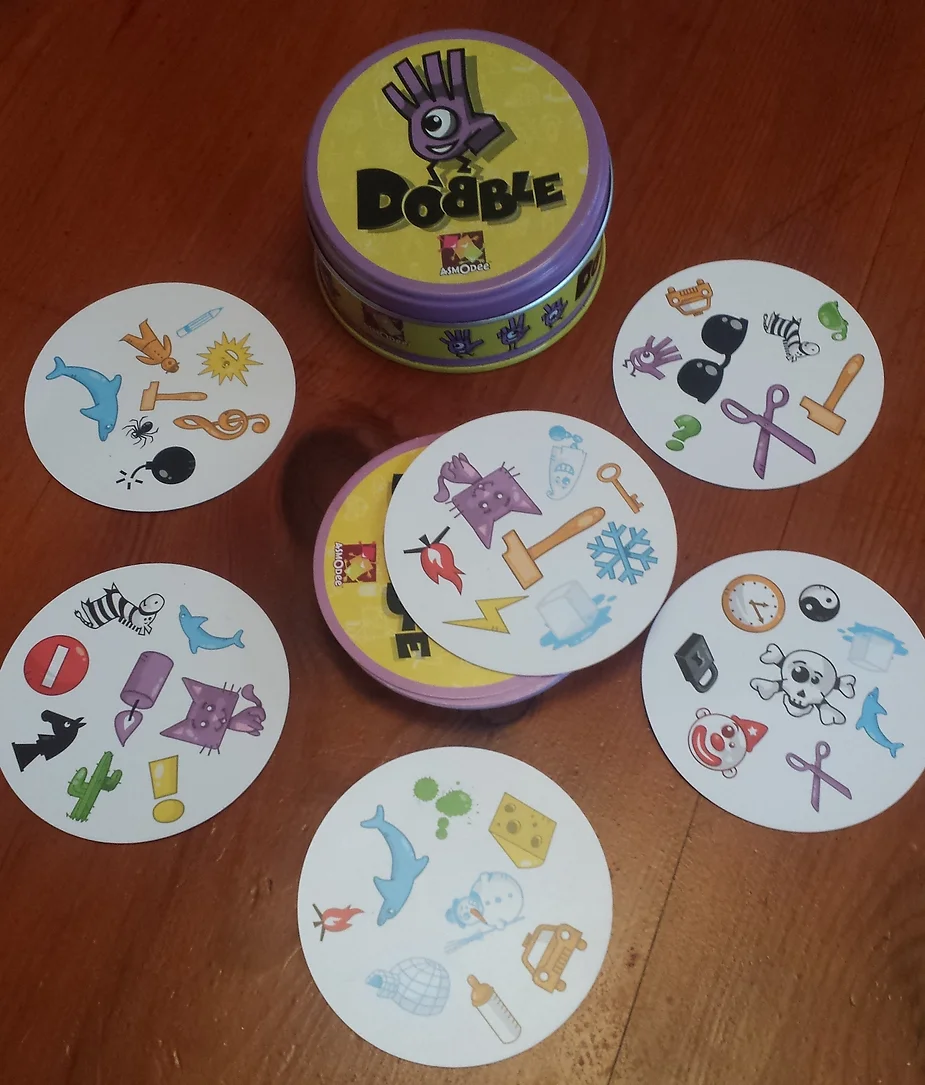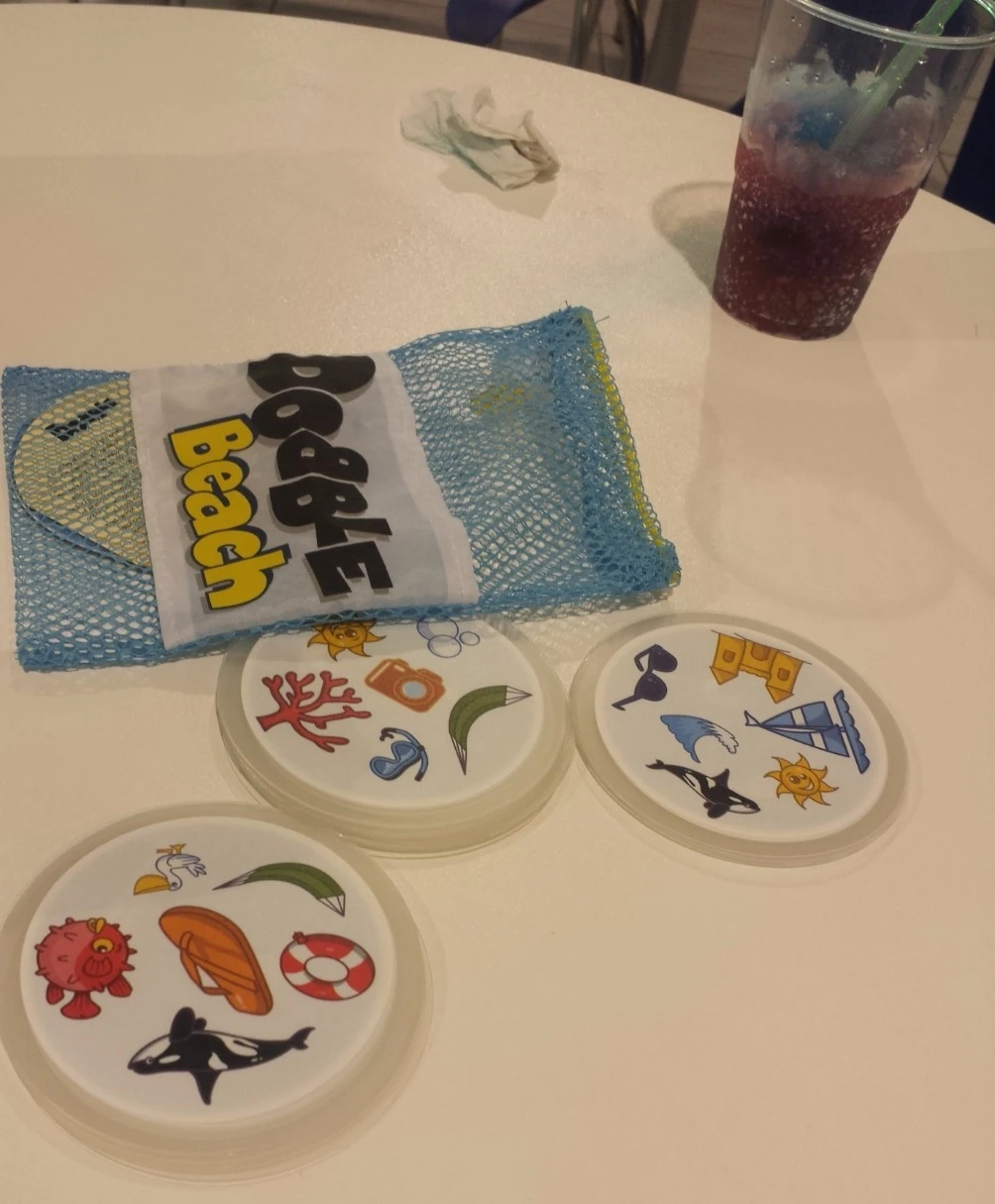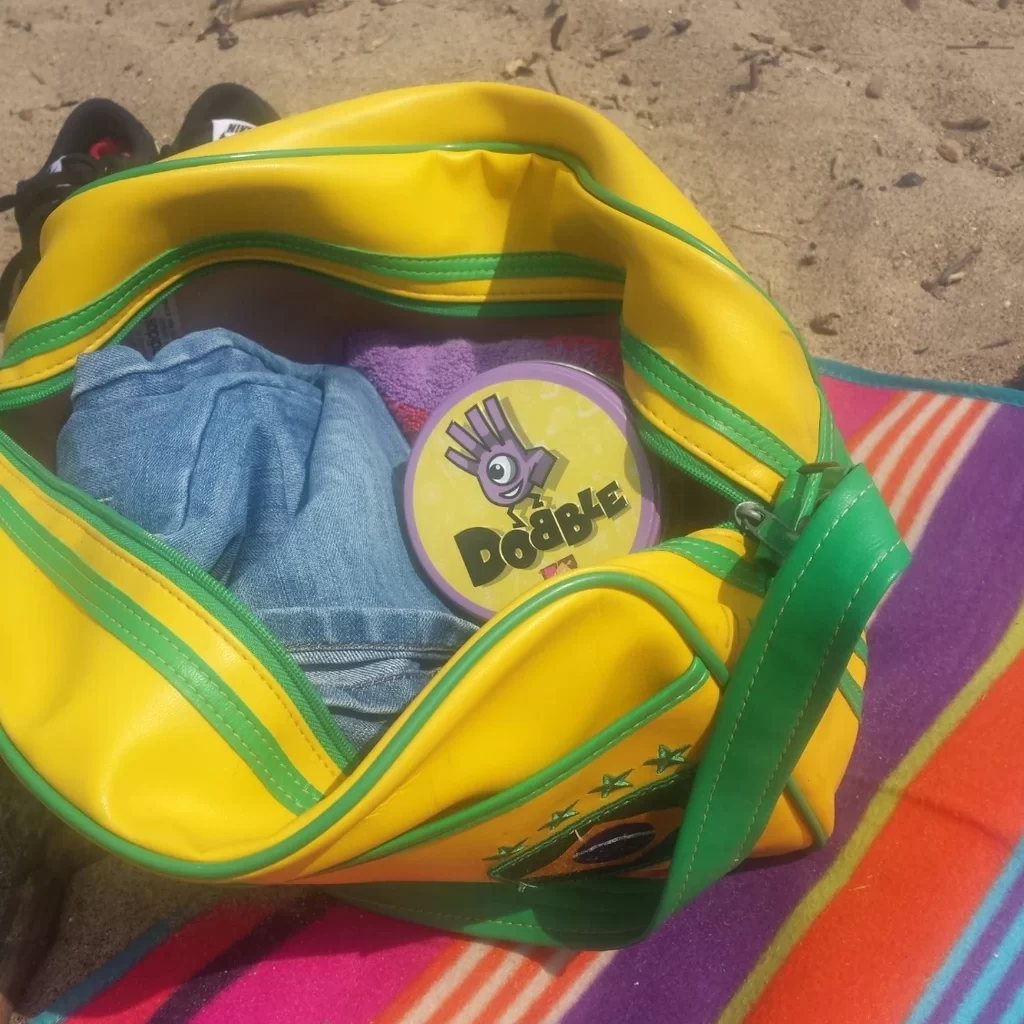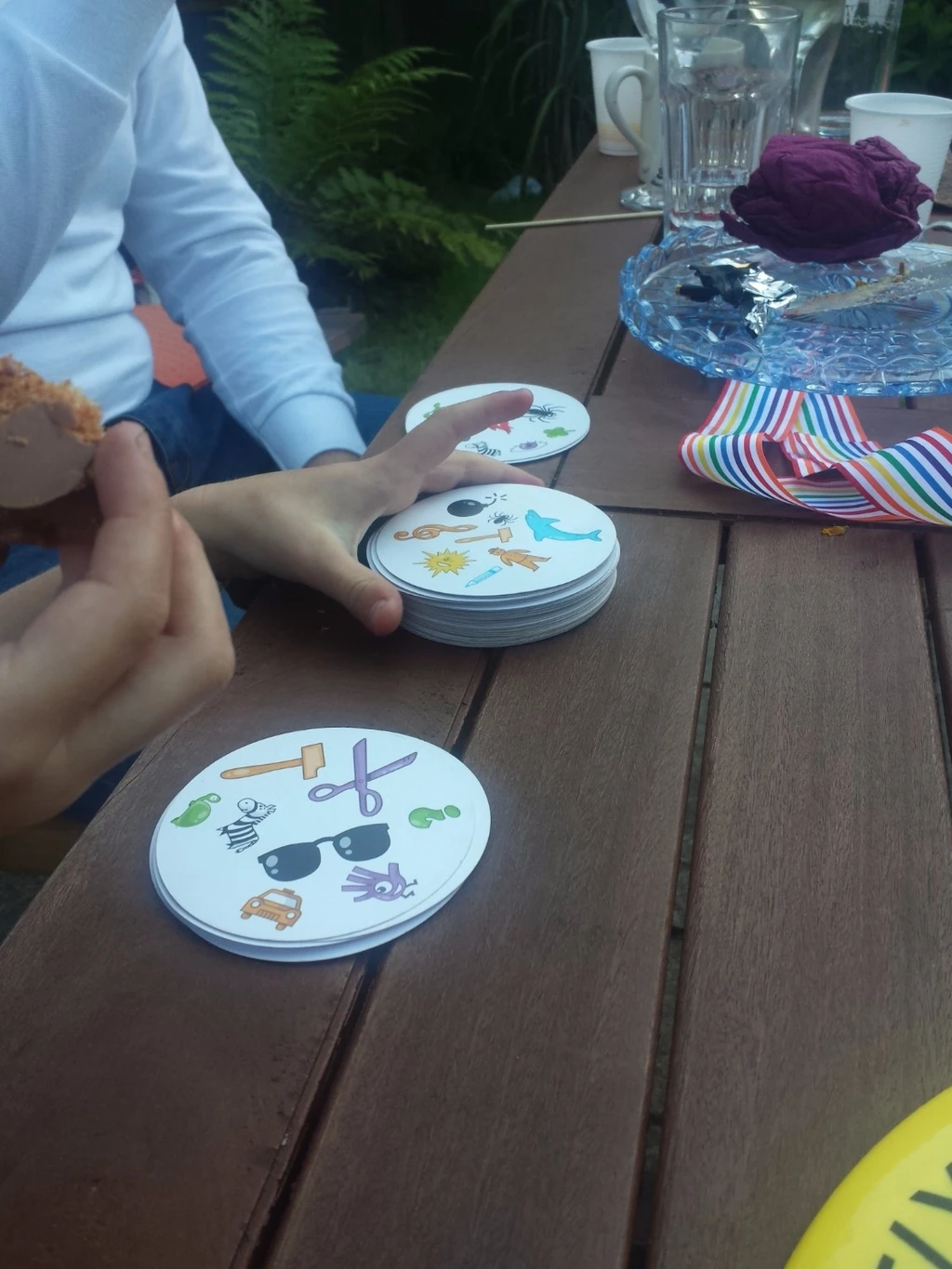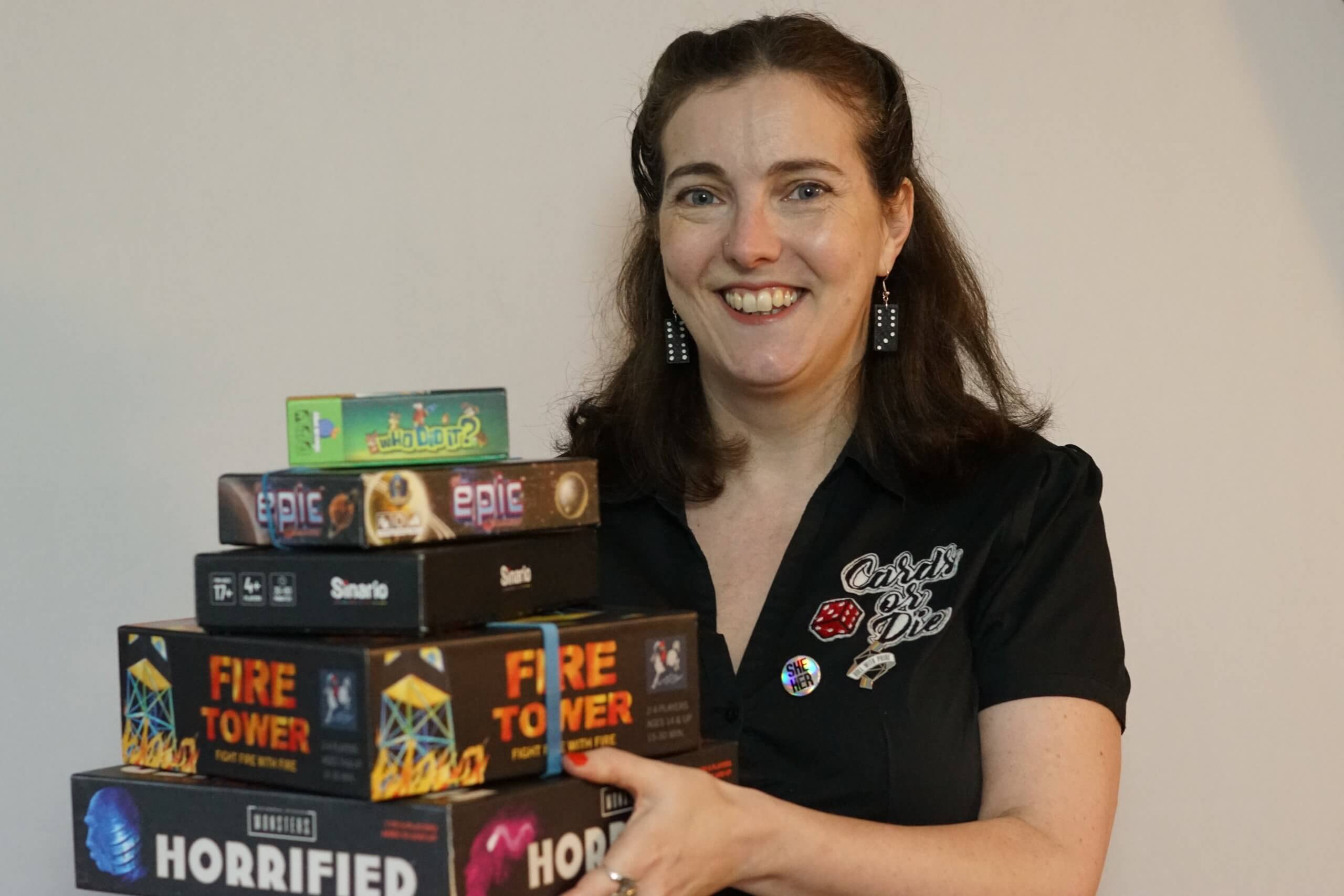My 11 year old announced this morning that one of the great things about not going to a childminder any more is that we eat together as a family now. Don’t get me wrong, some nights we have TV dinners on trays and most nights someone moans: ‘we always eat at the table, why can’t we have a change?’ or, ‘we never eat at the table, why have we got to tonight?’ Sometimes, infuriatingly, both these complaints are made at once. Never let the truth get in the way of a good moan.
The point is – kids moan. Or at least mine do. Getting them to come off screens and interact with others is a challenge that I don’t always have the energy for. Instead I often reserve my energy for getting them to school, making them eat something other than toast and making sure I get the last word in arguments. I’m very mature like that.
But when I do invest some of my precious energy ‘making’ them play board games as a family, we have a blast. During school holidays, particularly Christmas, when we are trapped in the house or trapped in someone else’s house visiting (if hell is other people surely visiting them in their own home is in one of the seven circles).
For so many of us board games are inextricably linked to Christmas. It’s easy to see why: –
They make great presents.

When you buy someone a game (whether child or adult) you are also giving them your time. This is more obvious when we buy for children – they unwrap the new game and a variety of adults get down on the floor and are immediately immersed – setting up, reading instructions, dealing cards, choosing a colour…And why should it be different for adults. We deserve fun and silliness or time spent strategising. When we give someone a game there is an unspoken gift of the time we spent choosing it specially for them and the time we will spend playing it together. In our busy lives, the gift of time is the most generous and vital one we can give.
We’re all bored.
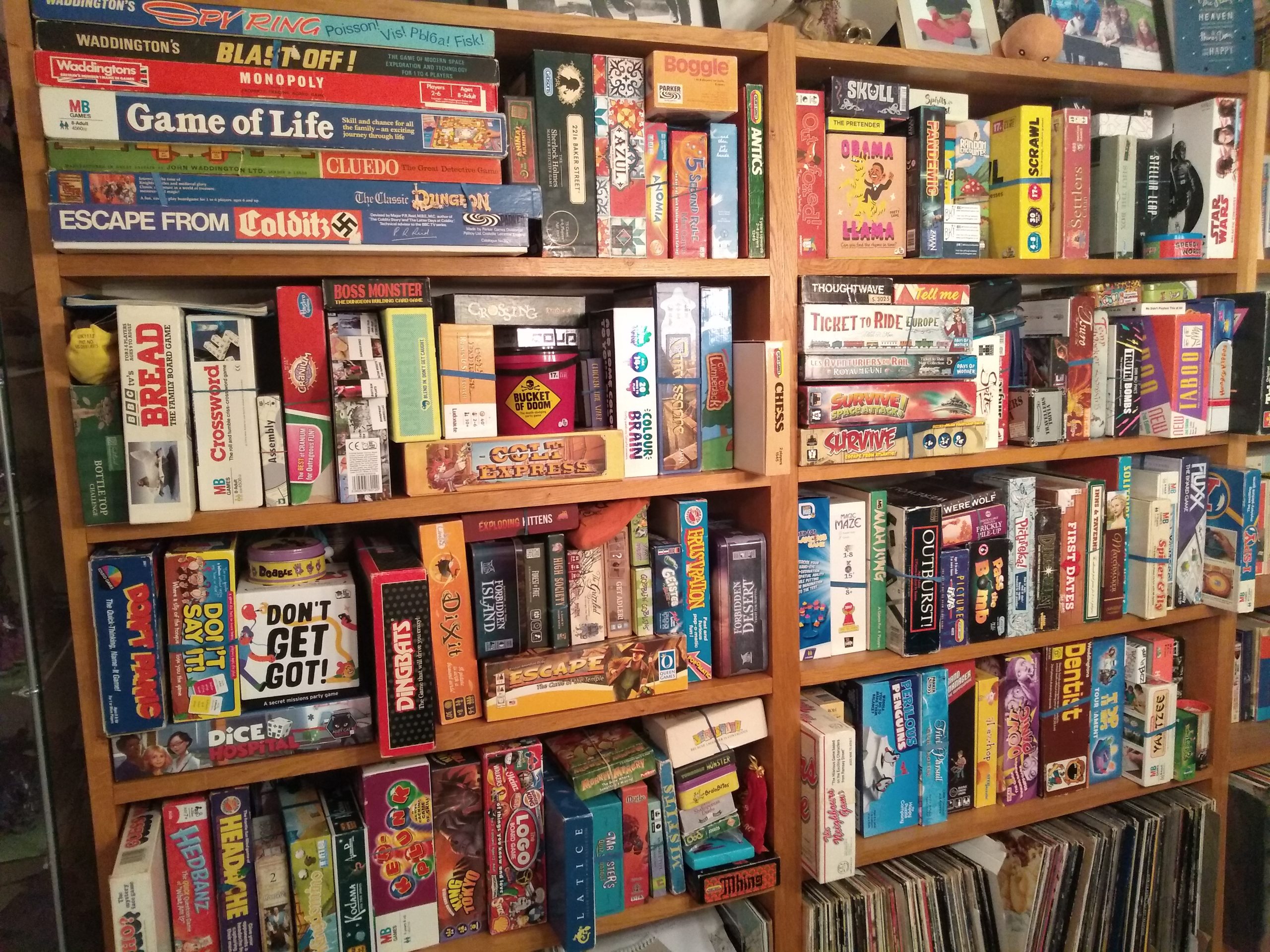
Apart from some isolated incidents of great TV over the Christmas period, Christmas is often a time when we tire of the TV. Even our favourite childminder deserves at least one day off a year. We are all looking for a distraction, a fun activity to do together indoors – it’s too cold to spend long outdoors. For generations Board Games have been the answer and now there is such a range of games available that there really is something for everyone. You are not limited to parlour games. There’s kittens to explode, cities to build, deserts to escape from, zombies to kill, train rides to take across Europe, stories to tell and pandemics to cure. Board games are the antidote to boredom and this has never been more true.
The Board Games Renaissance.
There has never been a more exciting time for board games. They are everywhere:- from your friendly local games store to Waterstones to the Works. There are always retro classics to be rediscovered in our attics or charity shops – not everything has to be new. There are games for every budget from print and play to collection games like Magic the Gathering. Every interest is covered – from pie stealing foxes to Star Wars to stupid deaths. When you are looking for a personal or quirky present a well chosen card or board game often has the answer (there’s even a game called Quirk! – what could be quirkier than that?!)
Tradition.
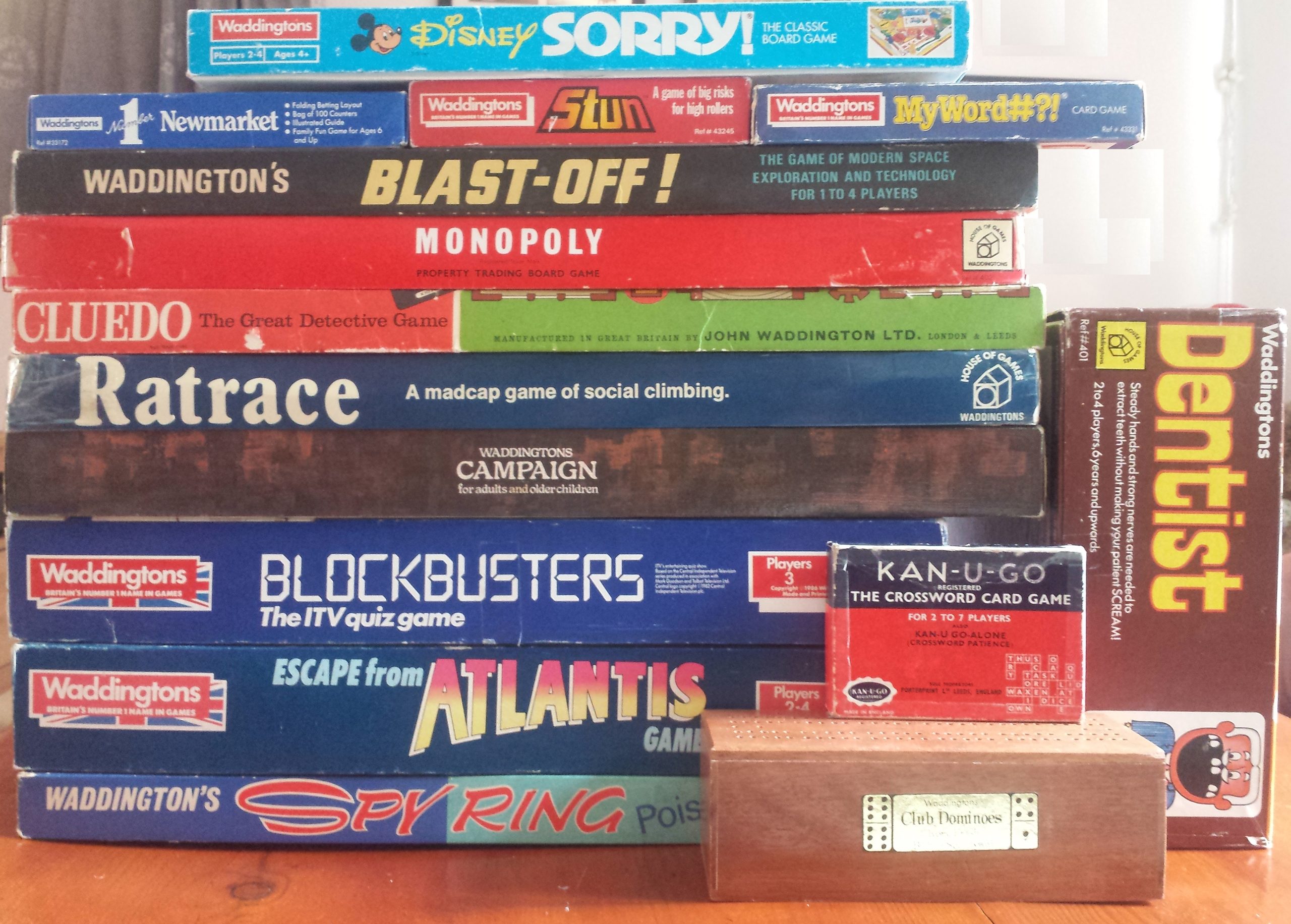
Christmas is a time of traditions and many households have Christmas board gaming traditions – whether it’s the purchase of a new game or an old favourite that comes out every year. Tradition is a powerful thing, often followed unwaveringly and unquestioningly. Those who dare to suggest change are shot down in flames or mocked for a lack of understanding. I know. Trust me – I’m a Morris Dancer. (Sentences you never thought you’d type #203)
So many of us unfalteringly return to board games for that one celebration per year. Sadly, when the decorations are packed away for another year so too are the games -left to acquire dust and one more year’s separation from the original rule book.
I’m not a fan of defending tradition for the sake of it. Some traditions need updating, amending or cutting into three, burying in far flung corners of the earth and eternally guarded. So what about board games?
If you enjoyed your Christmas games then why shelve them? If you enjoyed the idea of it, the family time spent together until someone went off in a huff because you bought Pall Mall then why not explore some different games?
There are so many benefits to board gaming. You can be exercising your brain- strategising, observing, planning; testing your reflexes, vocabulary or memory; laughing till your face hurts; preparing for a zombie apocalypse – life skills that should not be underestimated; you could be escaping, exploring imaginary worlds, fighting dragons, curing diseases; you can be spending time with old friends, playing with strangers, making new friends without worrying about conversation drying up or awkward moments. For me and Cards or Die this is what it’s all about – not winning or playing the latest big hit but bringing people together. That’s why I’m urging you to make a little space on your shelves so those Christmas games stay visible all year and make a little space for them in your day to day life. A little regular space where you can recapture that Christmas spirit, turn off the screens and be together.
You are always welcome to come along to a Cards or Die event too – come on your own or bring friends or family. Come and see us.
